Stuck the landing.
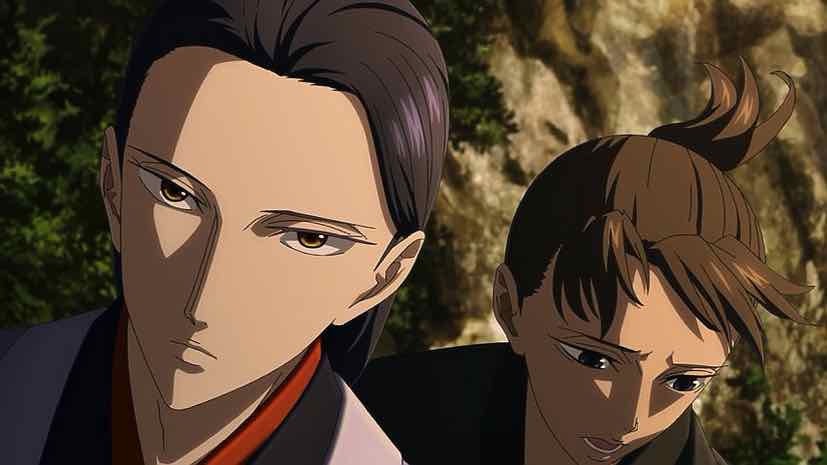 Let me be clear up front: I never had an expectation that Karasu wa Aruji o Erabanai would get a second season. It’s probably a miracle it ever got made in the first place. So my sadness today isn’t disappointment per se, more something fatalistic. “Sasuga” for anime, and not in a good way. While it’s theoretically possible something could come along down the line, more realistically I’m hoping someone decides to translate the novels (or more unlikely, that they’re licensed in English). That’s the only reason I ever got to see how the Moribito series turned out, and I figure it’s the least unlikely shot with Yatagarasu.
Let me be clear up front: I never had an expectation that Karasu wa Aruji o Erabanai would get a second season. It’s probably a miracle it ever got made in the first place. So my sadness today isn’t disappointment per se, more something fatalistic. “Sasuga” for anime, and not in a good way. While it’s theoretically possible something could come along down the line, more realistically I’m hoping someone decides to translate the novels (or more unlikely, that they’re licensed in English). That’s the only reason I ever got to see how the Moribito series turned out, and I figure it’s the least unlikely shot with Yatagarasu.
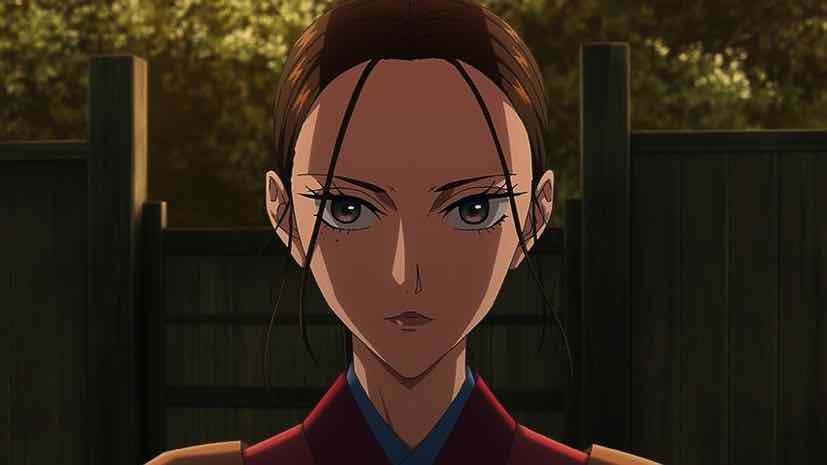 Speaking of Moribito, I can’t help but speak of Moribito. When I compare any anime to it, that’s’s basically the highest compliment I can give. I can count on one hand the number of series since Spring 2012 that have really put me in mind of that one, but Karasu wa Aruji o Erabanai absolutely did. There’s just something majestic and regal about the storytelling, something only really good epic fantasy can deliver in this particular way. You understand that you’re in the presence of greatness here, that you’re not watching something that rolled off the assembly line. Quality always stands out, in any day or age.
Speaking of Moribito, I can’t help but speak of Moribito. When I compare any anime to it, that’s’s basically the highest compliment I can give. I can count on one hand the number of series since Spring 2012 that have really put me in mind of that one, but Karasu wa Aruji o Erabanai absolutely did. There’s just something majestic and regal about the storytelling, something only really good epic fantasy can deliver in this particular way. You understand that you’re in the presence of greatness here, that you’re not watching something that rolled off the assembly line. Quality always stands out, in any day or age.
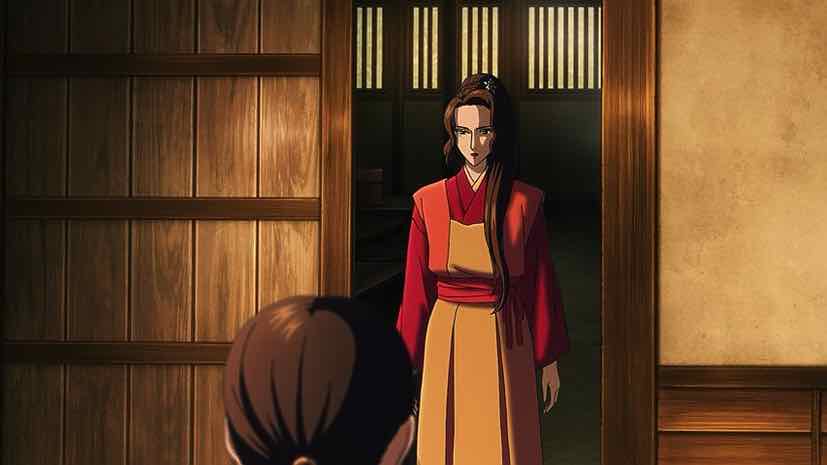 The resolution to the Koume affair (well, in the larger sense it’s still unresolved) was an interesting one. It seems that not only was Hatsune involved in the monkey business, she was the ringleader. That doesn’t seem to surprise Koume too much, given what she knows about the personalities of her parents. I suspect she’s idealizing Jihei’s part in all this a bit, but Hatsune makes it clear that she was the one who brokered the initial deal with the monkey in the well. In fact Jihei had no idea what he was transporting on that first business trip.
The resolution to the Koume affair (well, in the larger sense it’s still unresolved) was an interesting one. It seems that not only was Hatsune involved in the monkey business, she was the ringleader. That doesn’t seem to surprise Koume too much, given what she knows about the personalities of her parents. I suspect she’s idealizing Jihei’s part in all this a bit, but Hatsune makes it clear that she was the one who brokered the initial deal with the monkey in the well. In fact Jihei had no idea what he was transporting on that first business trip.
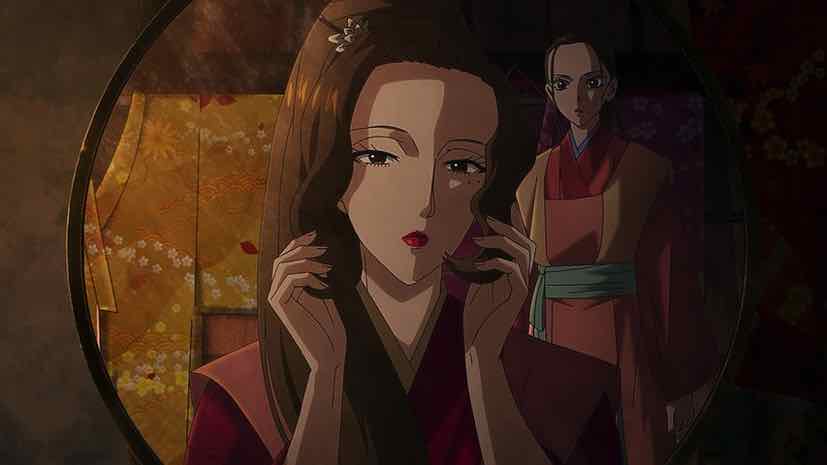 Jihei unquestionably took the fall by his own choice. Not just to protect his daughter, but to protect said daughter from the knowledge that Hatsune was involved (better to have one parent derided as a murderer than two). The problem is that Koume isn’t the sort to take things at face value, and being suspected herself forced her hand. Hatsune was right that coming to see her alone and unarmed, suspecting what Koume did, was a pretty naive move. Hatsune has romanticized her own role in this to be sure. In her mind she’s some kind of wronged victim just grabbing at what life had denied her. If a few (dozen) yatagarasu had to become monkey food to make that happen, it’s an acceptable price.
Jihei unquestionably took the fall by his own choice. Not just to protect his daughter, but to protect said daughter from the knowledge that Hatsune was involved (better to have one parent derided as a murderer than two). The problem is that Koume isn’t the sort to take things at face value, and being suspected herself forced her hand. Hatsune was right that coming to see her alone and unarmed, suspecting what Koume did, was a pretty naive move. Hatsune has romanticized her own role in this to be sure. In her mind she’s some kind of wronged victim just grabbing at what life had denied her. If a few (dozen) yatagarasu had to become monkey food to make that happen, it’s an acceptable price.
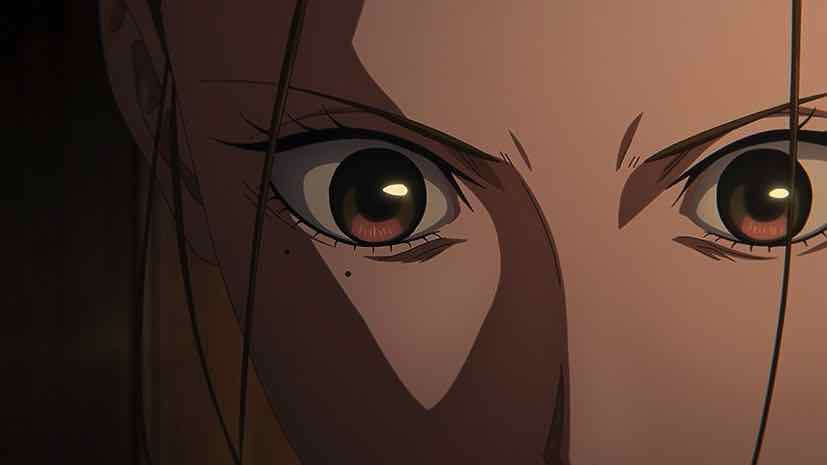 Yukiya does indeed come for Koume, just as she suspected he would – even if she had a cynical view of why it would happen. Yukiya has the integrity to be ashamed of having presumed Koume’s guilt, but things are hardly left in a good place between them. A lot better than they would have been otherwise of course, since Yukiya and Nazukihiko stopped Hatsune from strangling her. But Hatsune’s new lover is an even bigger problem, since he’s a sagecap addict and pretty far gone at that. Wakamiya reversing his blade and attacking with the hilt very much takes Yukiya by surprise (the explanation won’t come until later in the episode).
Yukiya does indeed come for Koume, just as she suspected he would – even if she had a cynical view of why it would happen. Yukiya has the integrity to be ashamed of having presumed Koume’s guilt, but things are hardly left in a good place between them. A lot better than they would have been otherwise of course, since Yukiya and Nazukihiko stopped Hatsune from strangling her. But Hatsune’s new lover is an even bigger problem, since he’s a sagecap addict and pretty far gone at that. Wakamiya reversing his blade and attacking with the hilt very much takes Yukiya by surprise (the explanation won’t come until later in the episode).
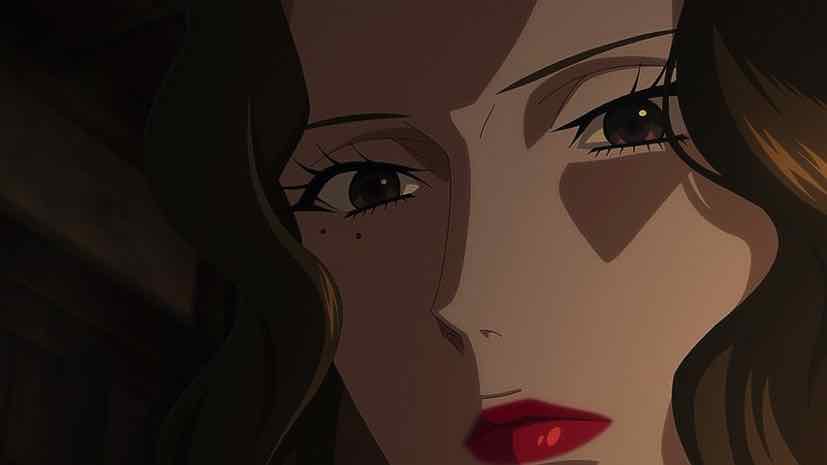 Stabbed by a hairpin would have been a pretty ignominious way for the true Kin’u to go out, but happily the prince survives. Hatsune is unrepentant, pointing out that her fellow yatagarasu were nowhere to be found when her father starting selling her body at 13. Both Yukiya and Sumio blame themselves for what’s happened, but Hamayu is having none of that. She tells Yukiya that it’s literally impossible for Nazukihiko to kill another yatagarasu, so deeply ingrained is his love for them and need to protect them. Also deeply ingrained is his lack of emotion – though I heartily agree with Hamayu that the prince absolutely does feel the same emotions the rest of us do. He’s just got too much responsibility to indulge them.
Stabbed by a hairpin would have been a pretty ignominious way for the true Kin’u to go out, but happily the prince survives. Hatsune is unrepentant, pointing out that her fellow yatagarasu were nowhere to be found when her father starting selling her body at 13. Both Yukiya and Sumio blame themselves for what’s happened, but Hamayu is having none of that. She tells Yukiya that it’s literally impossible for Nazukihiko to kill another yatagarasu, so deeply ingrained is his love for them and need to protect them. Also deeply ingrained is his lack of emotion – though I heartily agree with Hamayu that the prince absolutely does feel the same emotions the rest of us do. He’s just got too much responsibility to indulge them.
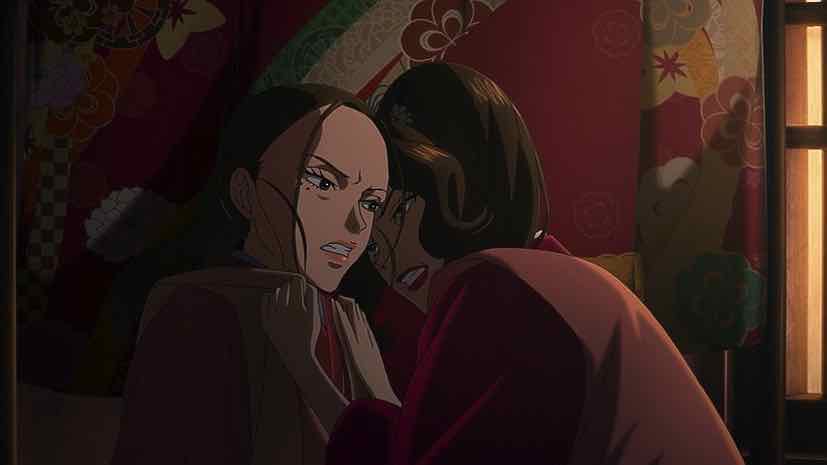 More and more over the course of the series, it’s become clear just what a huge weight Nazukihiko bears on his shoulders. Yukiya is a very smart and very perceptive boy – this is certainly not lost on him. He comes to understand that the best way he can protect his people whom he loves so dearly is to protect Wakamiya. Only Wakamiya can protect anyone in the end, and Yamauchi needs a whole lot of protecting. But it goes deeper than that. This is a young man who knows something about presenting a false face to the world for the sake of others, about subverting his own feelings for the sake of his people. He sees in the prince a kindred spirit, just as Nazukihiko saw one in him. And what grows between them as a result is a loyalty born of love and respect.
More and more over the course of the series, it’s become clear just what a huge weight Nazukihiko bears on his shoulders. Yukiya is a very smart and very perceptive boy – this is certainly not lost on him. He comes to understand that the best way he can protect his people whom he loves so dearly is to protect Wakamiya. Only Wakamiya can protect anyone in the end, and Yamauchi needs a whole lot of protecting. But it goes deeper than that. This is a young man who knows something about presenting a false face to the world for the sake of others, about subverting his own feelings for the sake of his people. He sees in the prince a kindred spirit, just as Nazukihiko saw one in him. And what grows between them as a result is a loyalty born of love and respect.
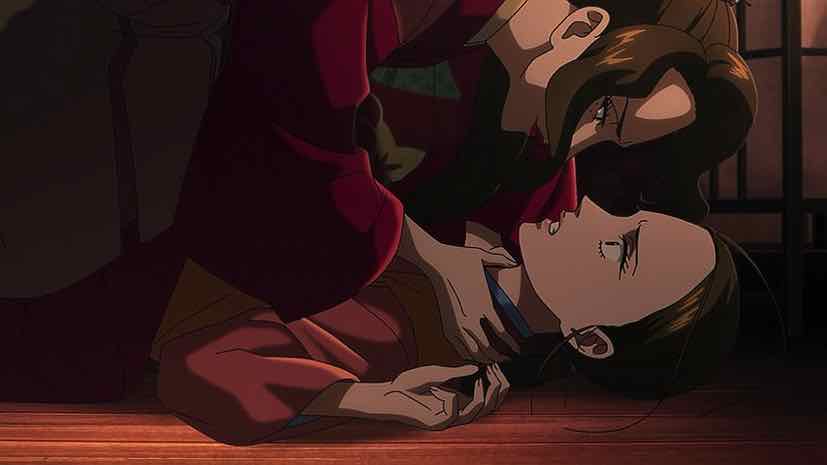 The revelation of just what constitutes Wakamiya’s “ghost fire” is beautiful and terrifying, and it’s executed in an exquisite manner. Yamauchi seems doomed, surely, even if the young price drags himself out of his sickbed and fires his arrows into an encroaching world too massive to comprehend. Yukiya comprehends his smallness beyond any shred of doubt, and he can only pledge himself to Nazukihiko in the humblest manner possible. The bond between them is a beautiful thing – the prince making absolutely clear what that pledge truly means for Yukiya, the boy steadfastly resolving to stay by his side. Such a pledge, freely given, is the only sort of loyalty that Nazukihiko can trust in his situation – and only from someone like Yukiya would such a thing be possible.
The revelation of just what constitutes Wakamiya’s “ghost fire” is beautiful and terrifying, and it’s executed in an exquisite manner. Yamauchi seems doomed, surely, even if the young price drags himself out of his sickbed and fires his arrows into an encroaching world too massive to comprehend. Yukiya comprehends his smallness beyond any shred of doubt, and he can only pledge himself to Nazukihiko in the humblest manner possible. The bond between them is a beautiful thing – the prince making absolutely clear what that pledge truly means for Yukiya, the boy steadfastly resolving to stay by his side. Such a pledge, freely given, is the only sort of loyalty that Nazukihiko can trust in his situation – and only from someone like Yukiya would such a thing be possible.
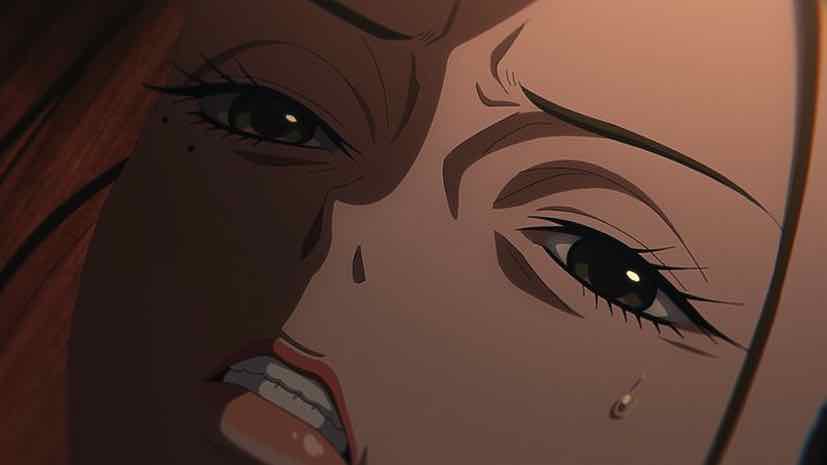 Yukiya ending up at the Unbending Reed Monastery after all is an ironic turn at the end of all things. The fate he accepted being the prince’s aide to avoid he now embraces as the best possible way to become worthy of protecting him. It hardly requires keen insight to see all the wealth of possibilities going forth from here, both for character and plot. Such was the case at the end of Seirei no Moribito as well of course, and while we never saw those possibilities realized in anime form, it was nevertheless a thrill to have them revealed to us and a privilege to have been part of the experience.
Yukiya ending up at the Unbending Reed Monastery after all is an ironic turn at the end of all things. The fate he accepted being the prince’s aide to avoid he now embraces as the best possible way to become worthy of protecting him. It hardly requires keen insight to see all the wealth of possibilities going forth from here, both for character and plot. Such was the case at the end of Seirei no Moribito as well of course, and while we never saw those possibilities realized in anime form, it was nevertheless a thrill to have them revealed to us and a privilege to have been part of the experience.
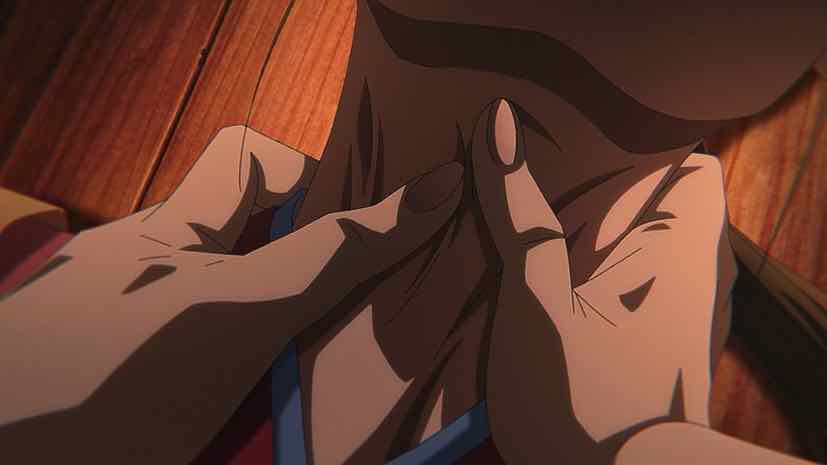 That’s very much how I feel about Karasu wa Aruji o Erabanai. Series which thrill our imagination like this are why I was drawn to anime in the first place, and I’ll never stop hoping the next one will come along soon, even as I’m grateful for the one that’s just finished. They’re rare as a cool day in a Kyoto summer, but that just makes them that much more precious when they do come around.
That’s very much how I feel about Karasu wa Aruji o Erabanai. Series which thrill our imagination like this are why I was drawn to anime in the first place, and I’ll never stop hoping the next one will come along soon, even as I’m grateful for the one that’s just finished. They’re rare as a cool day in a Kyoto summer, but that just makes them that much more precious when they do come around.
End Card:


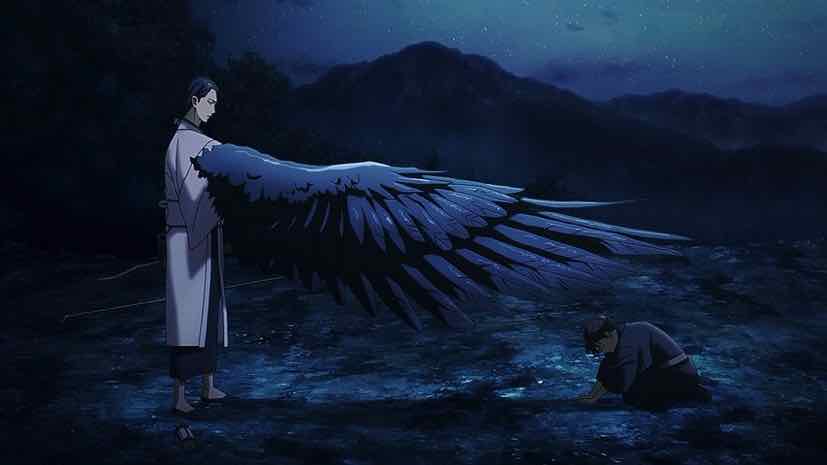
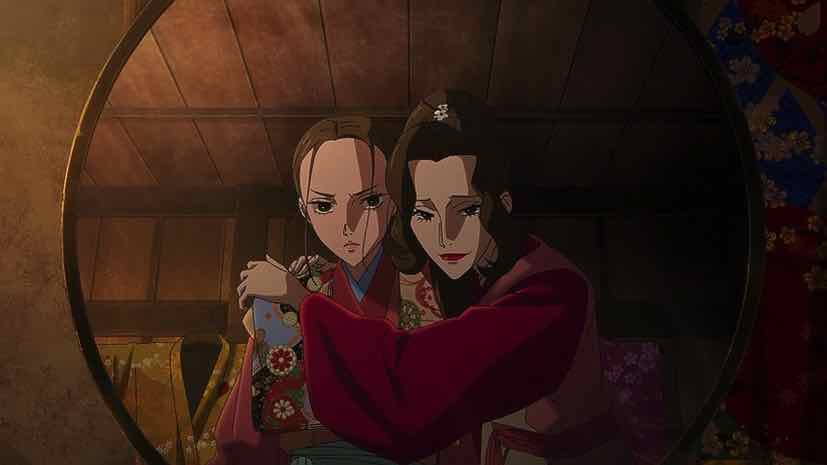
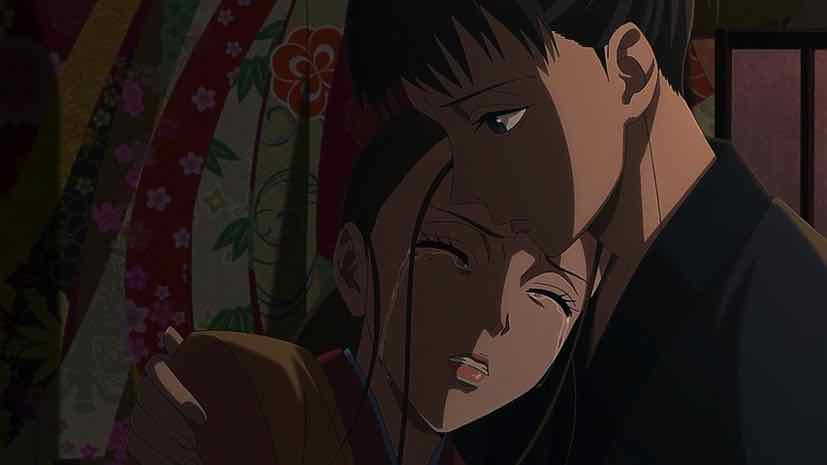
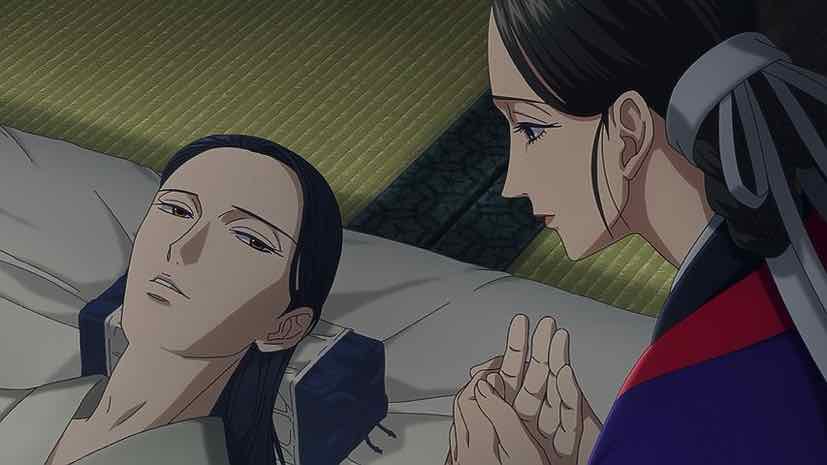
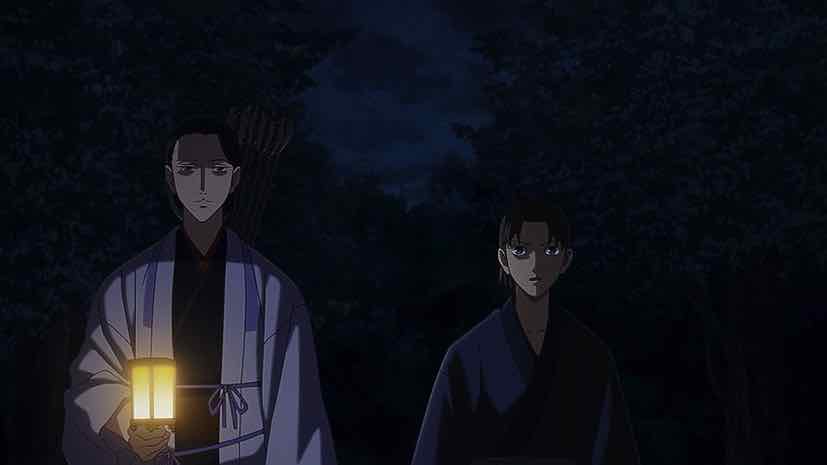
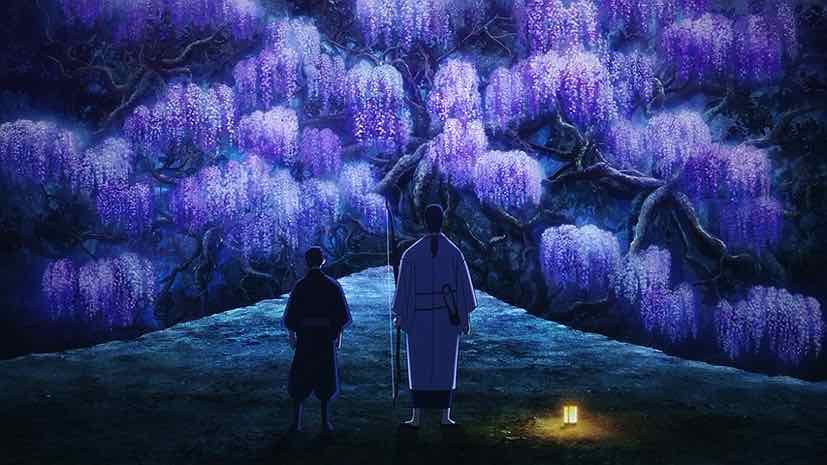
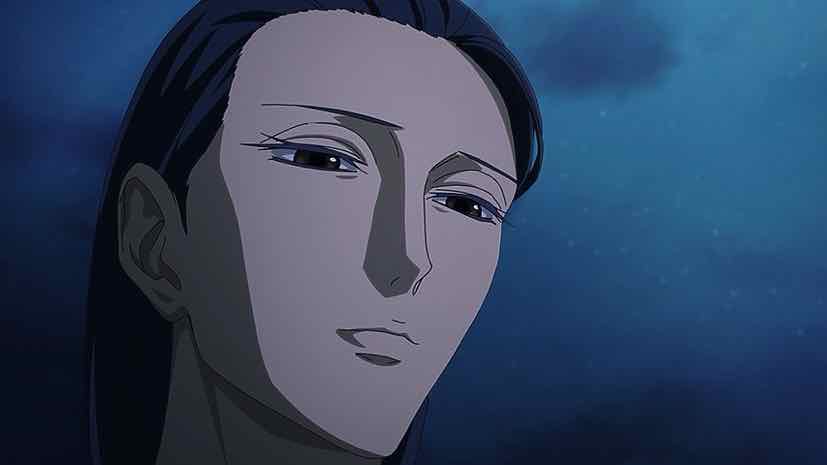
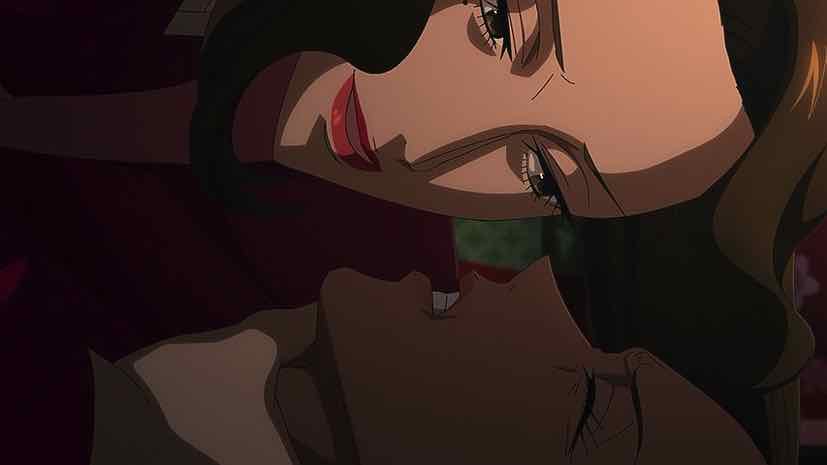
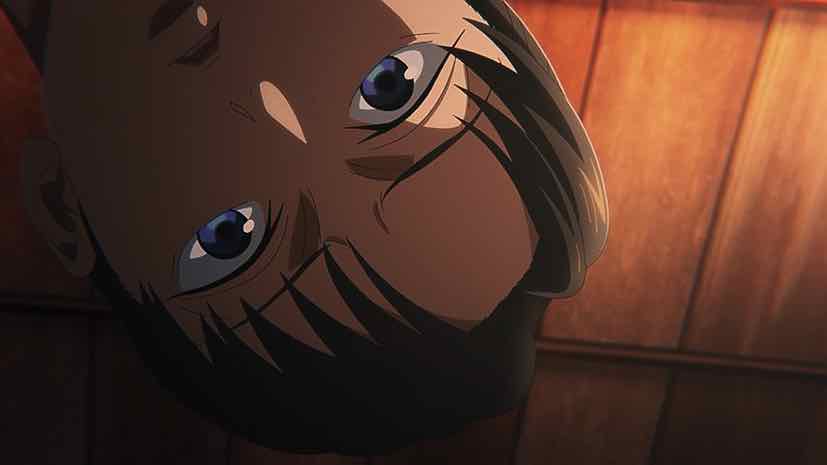
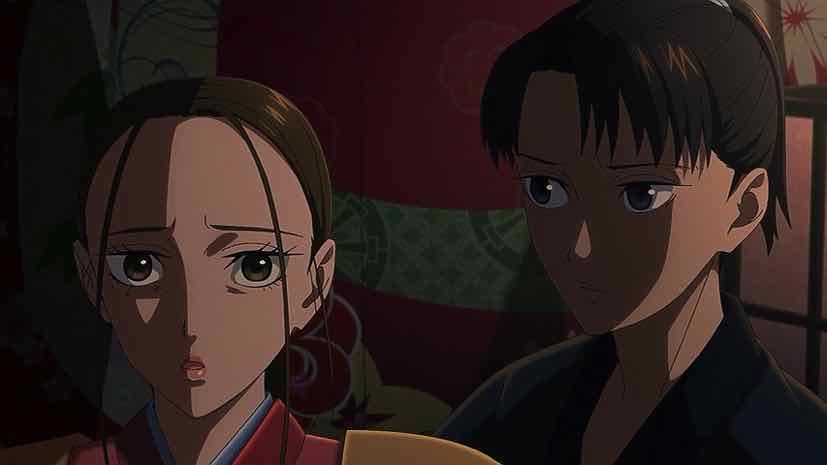
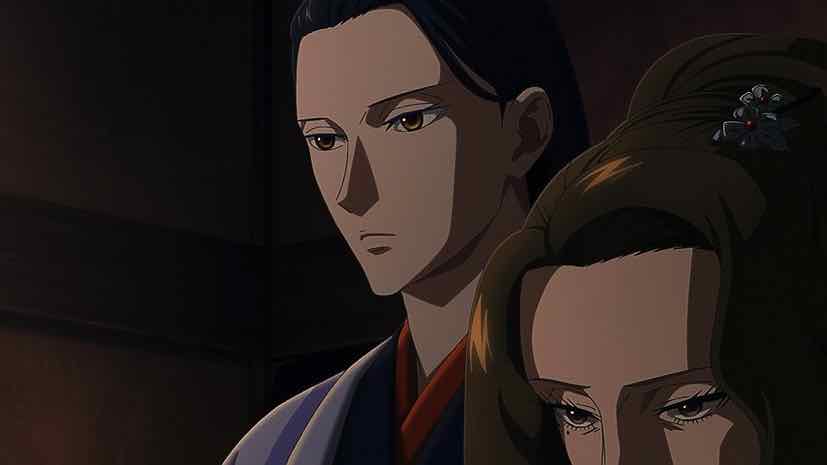
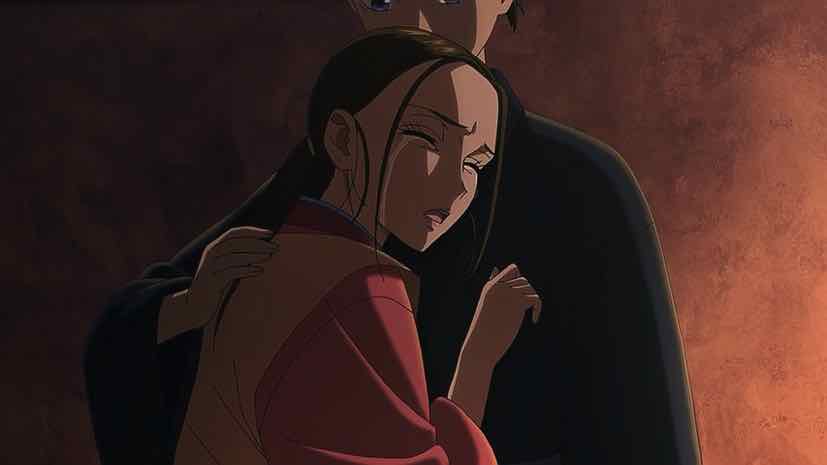
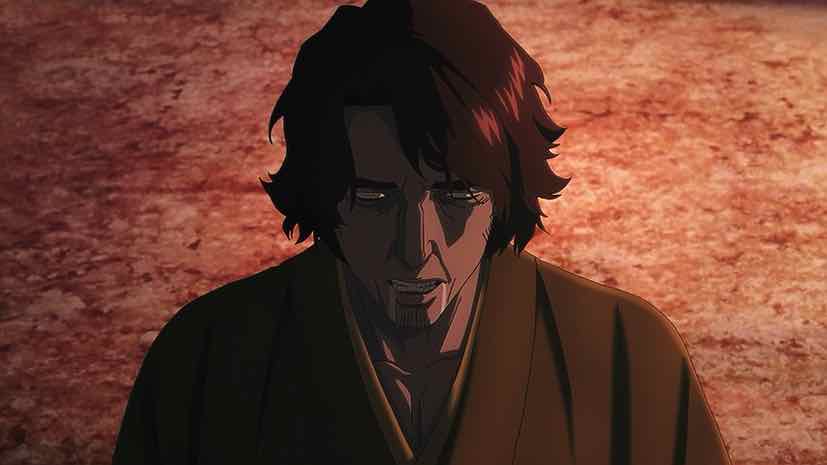
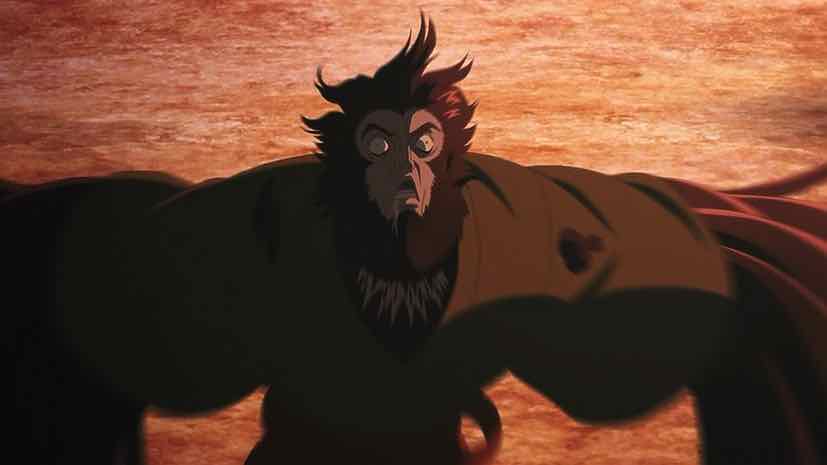
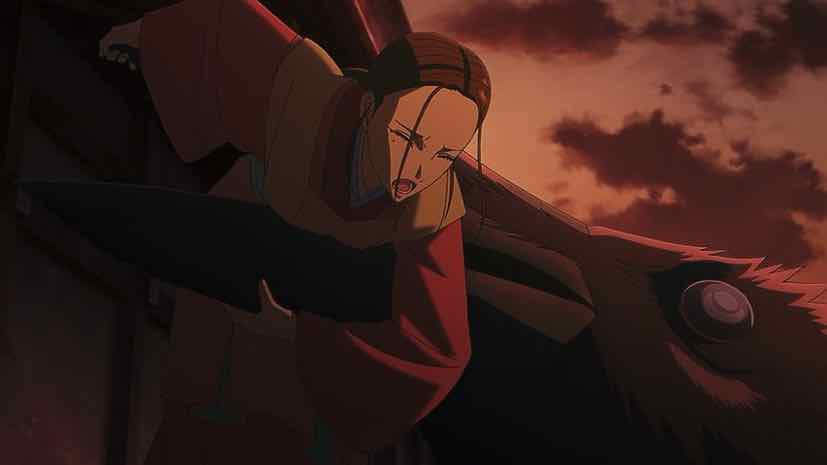
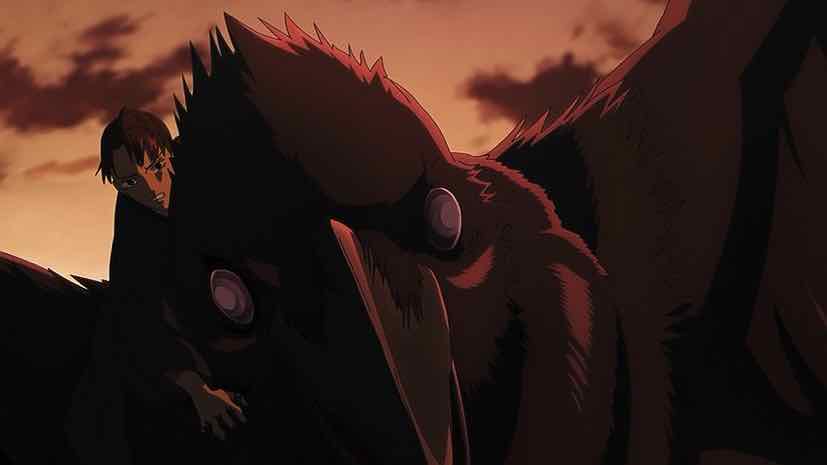
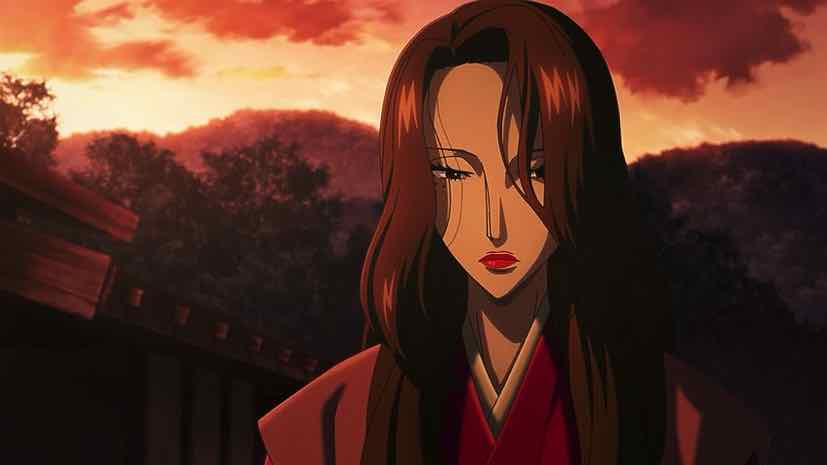
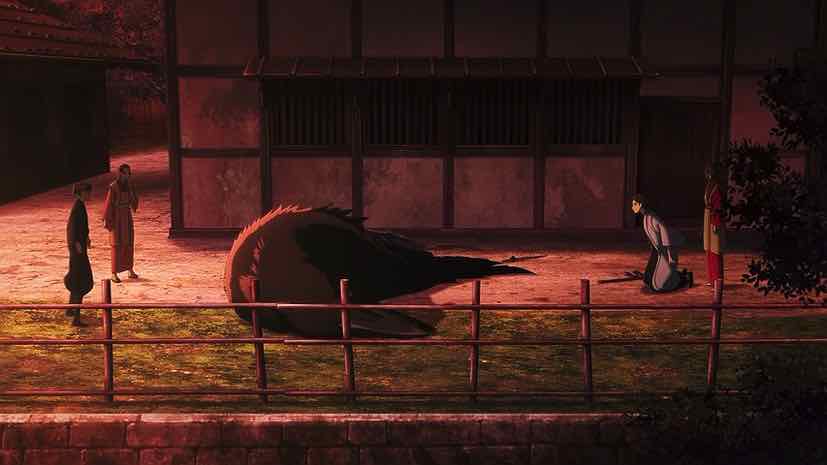
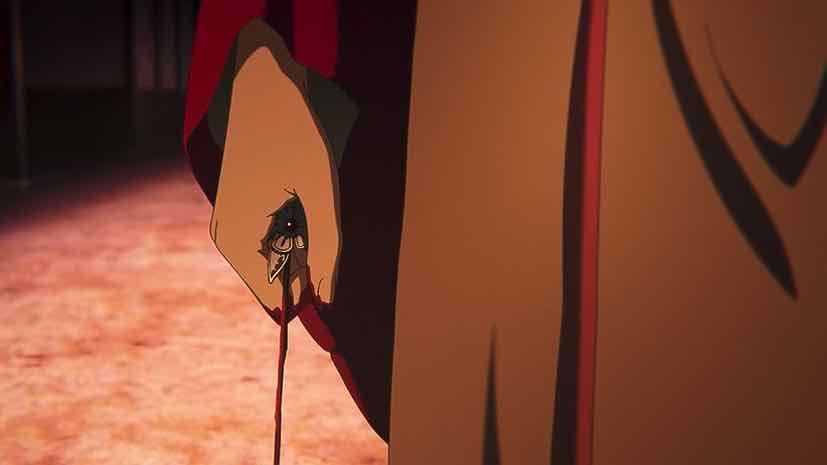
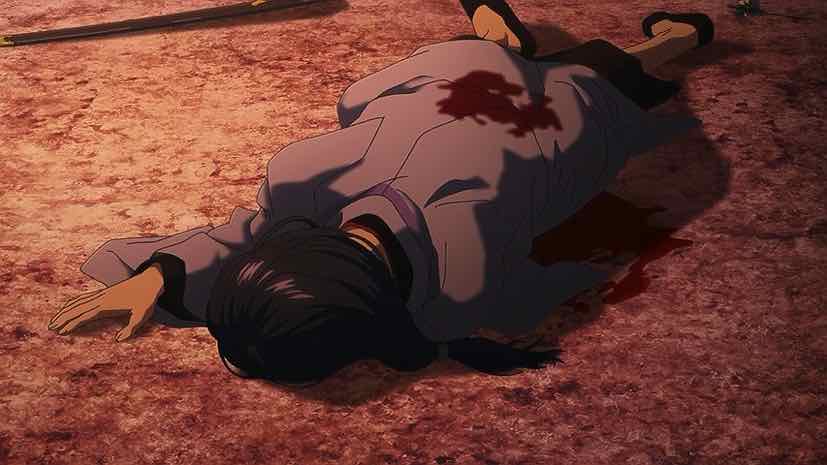
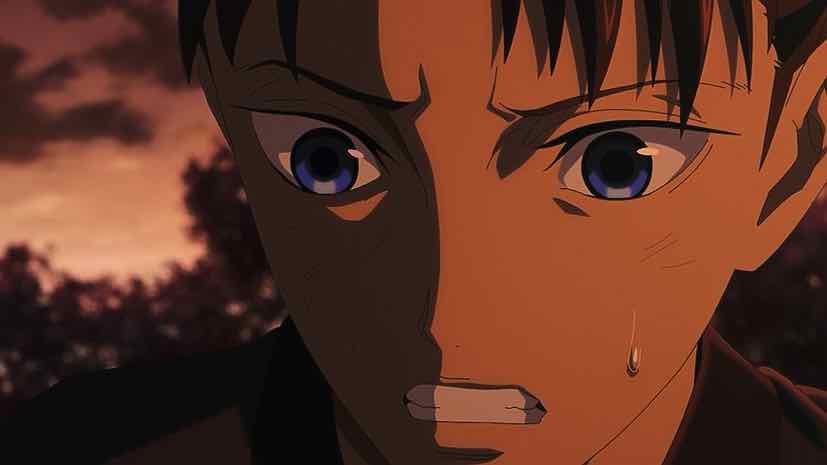
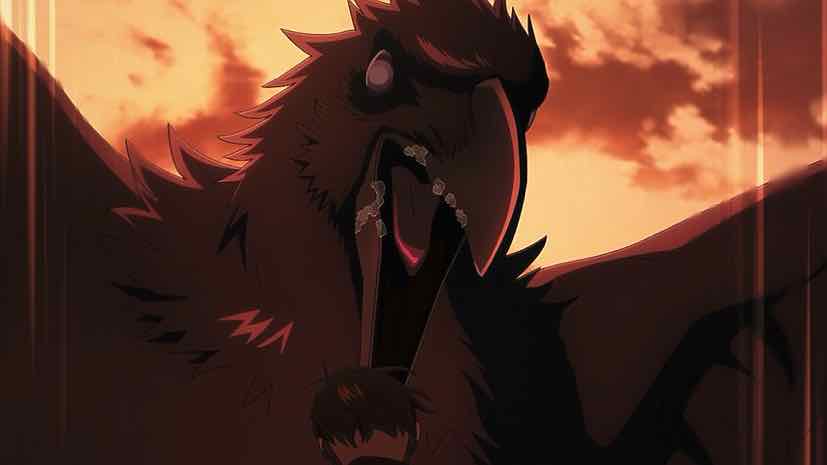
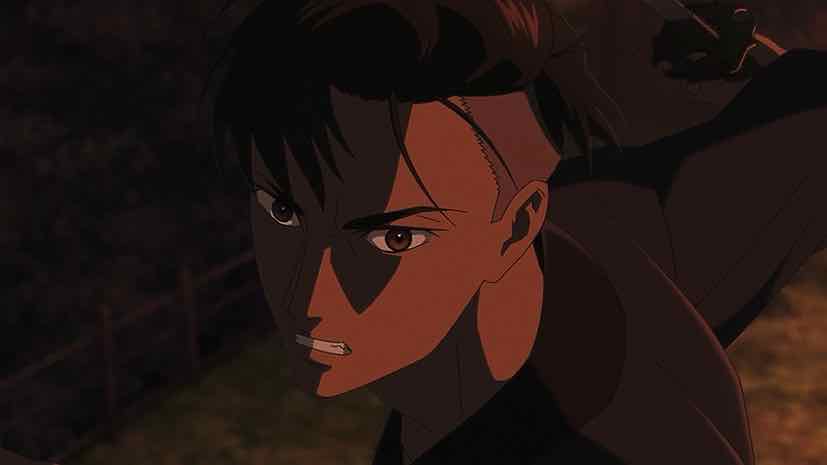
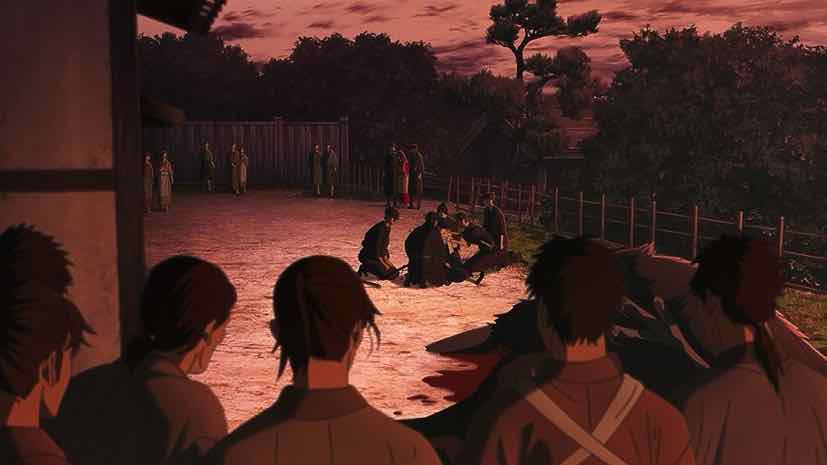
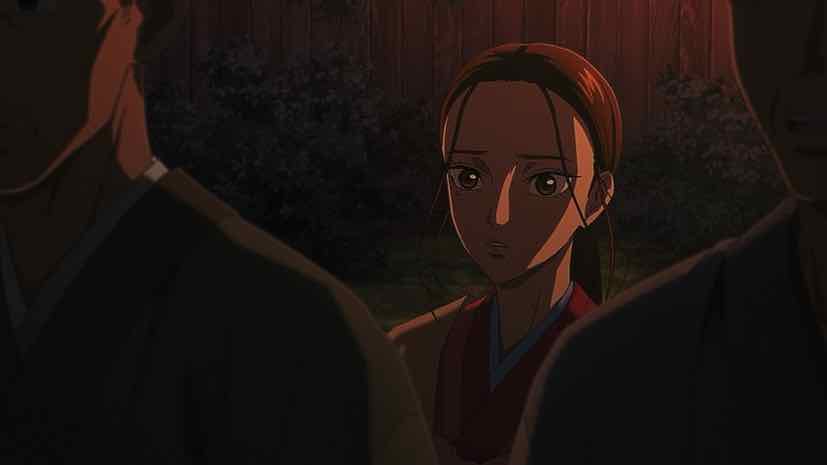
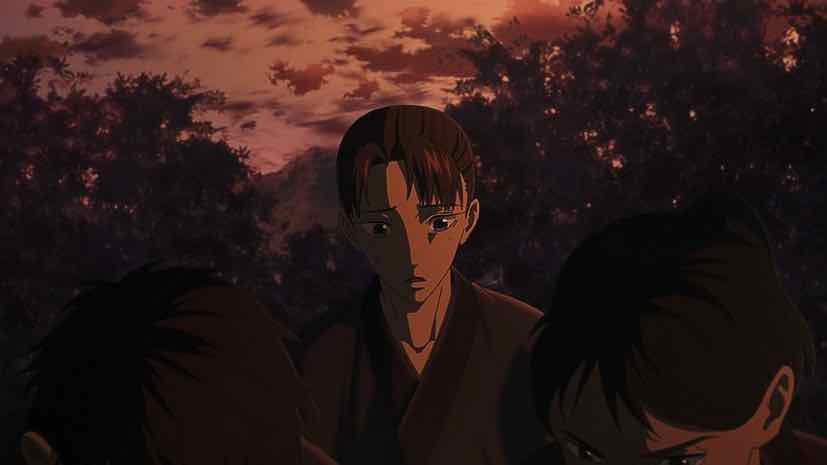
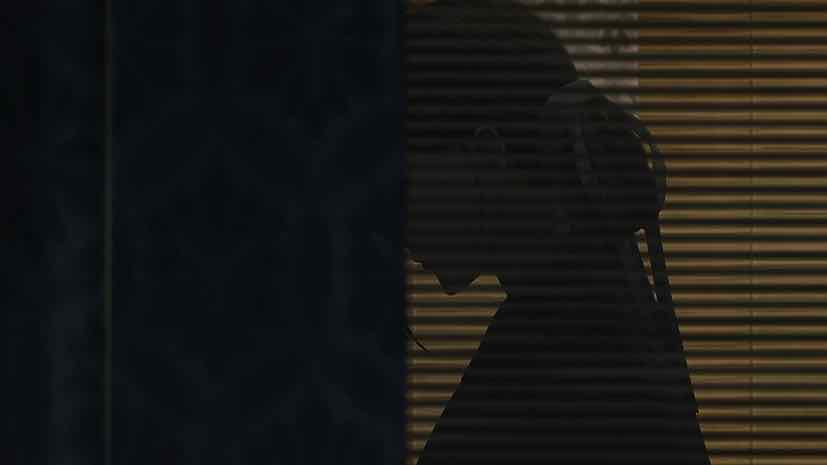
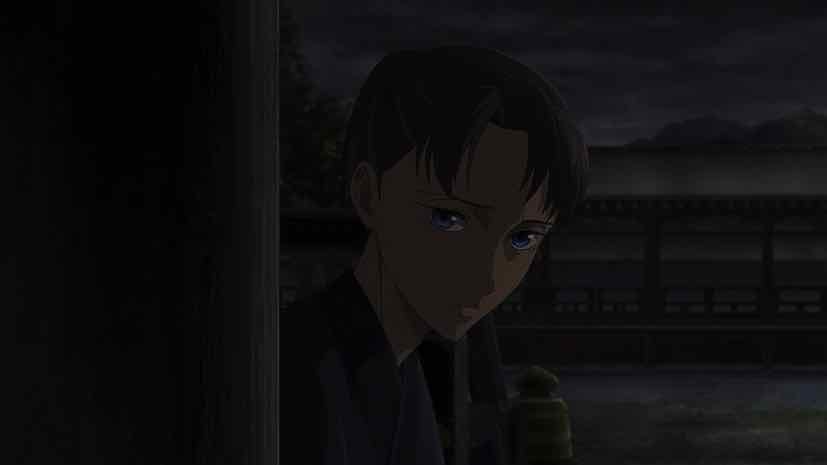
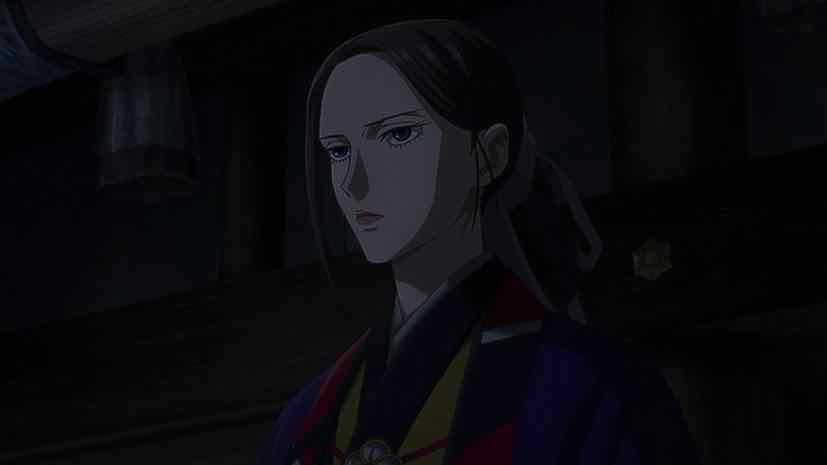
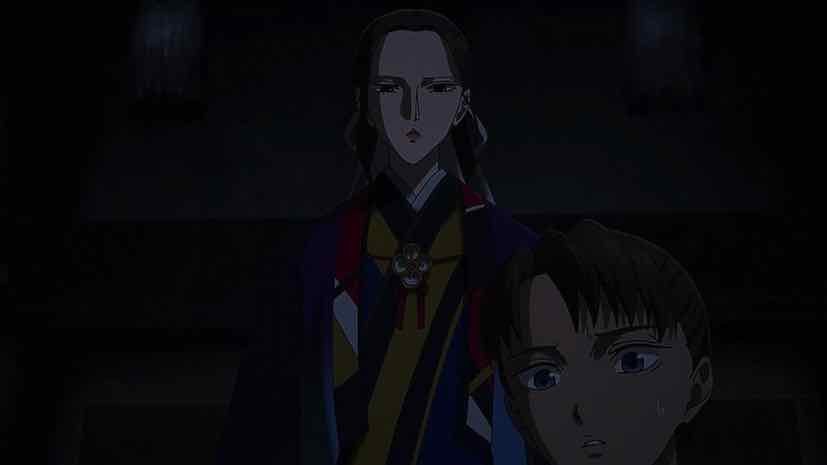
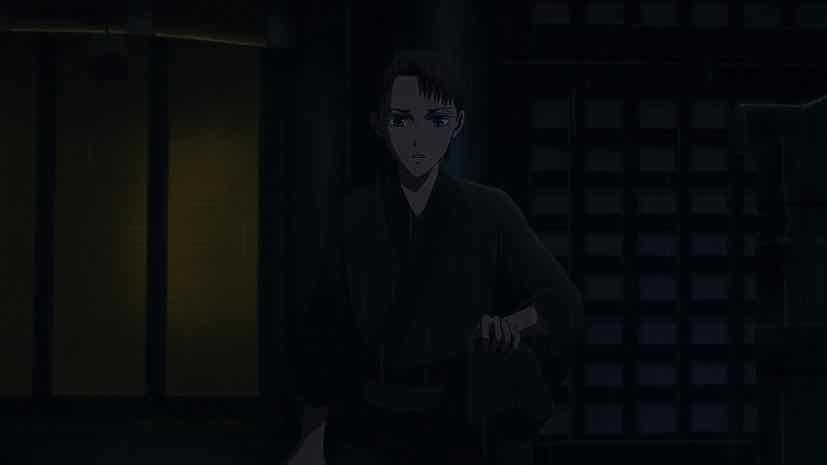
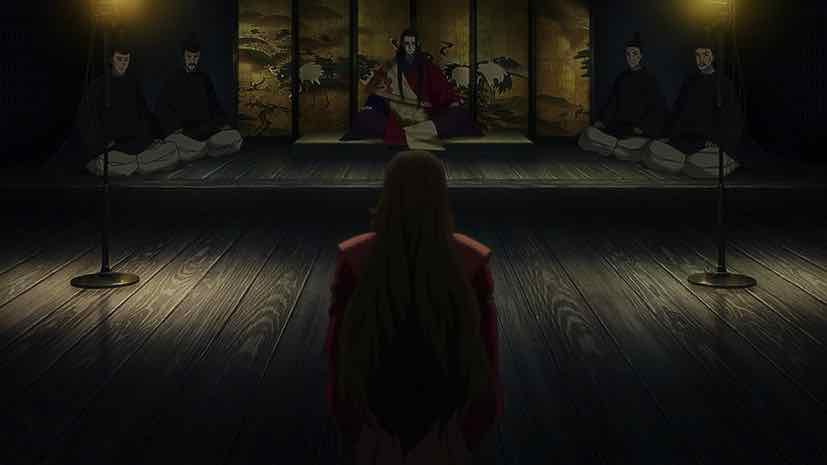
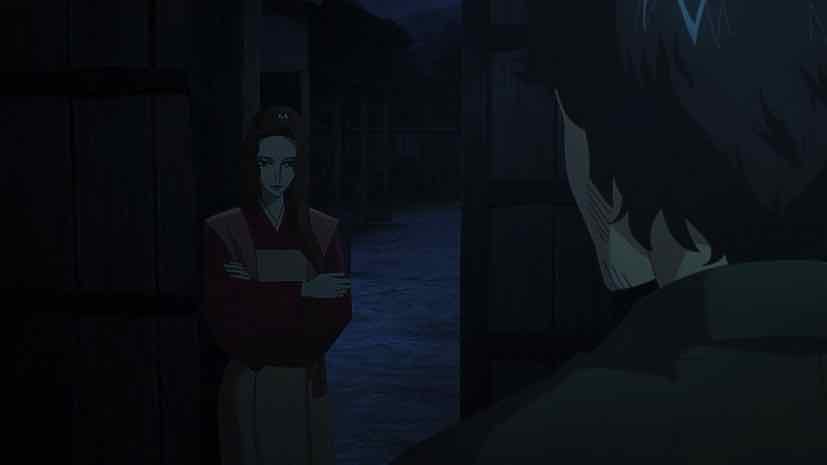
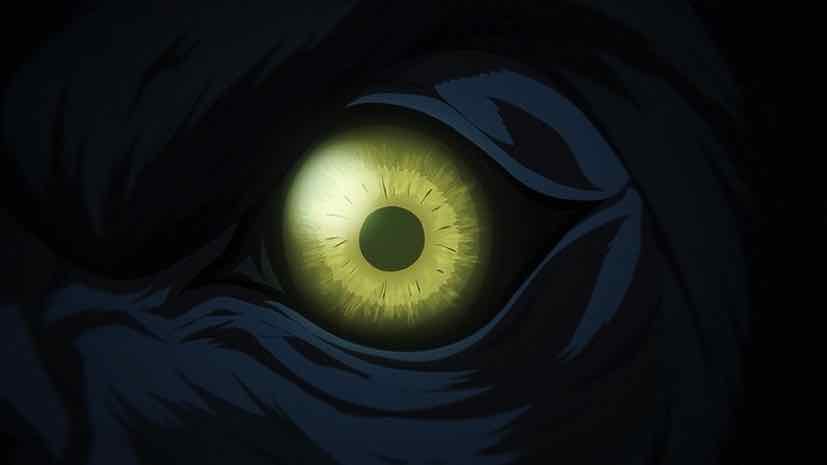
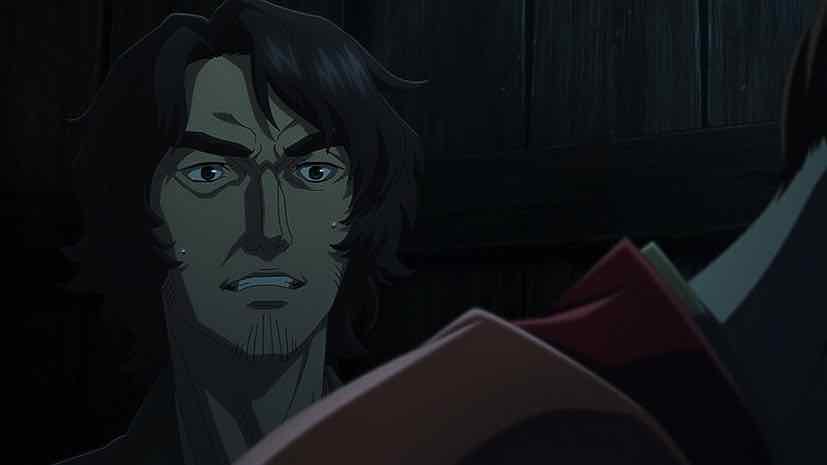
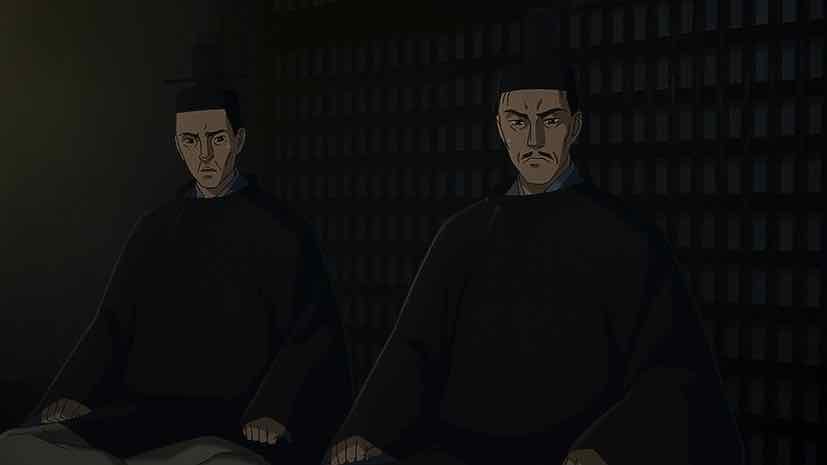
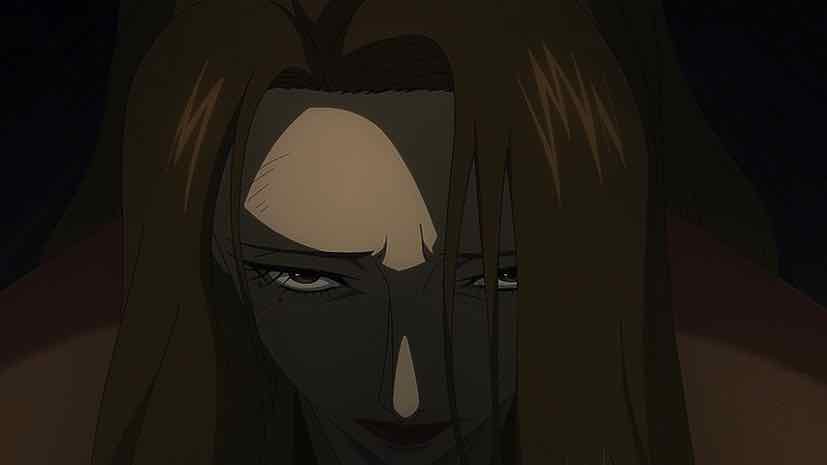
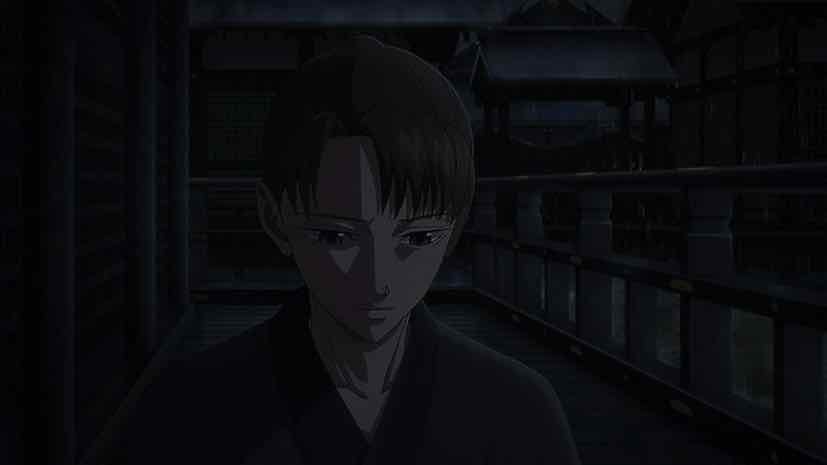
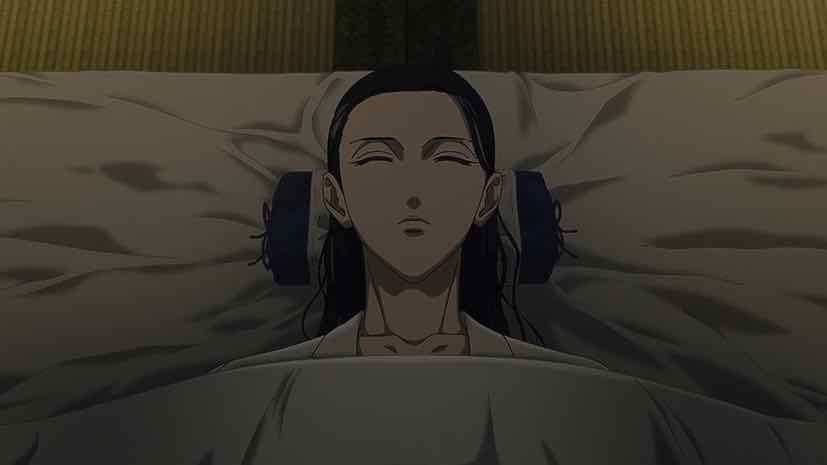
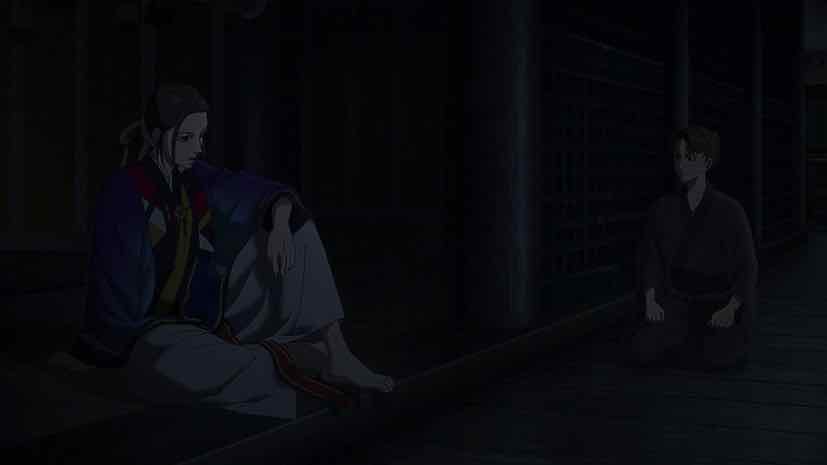
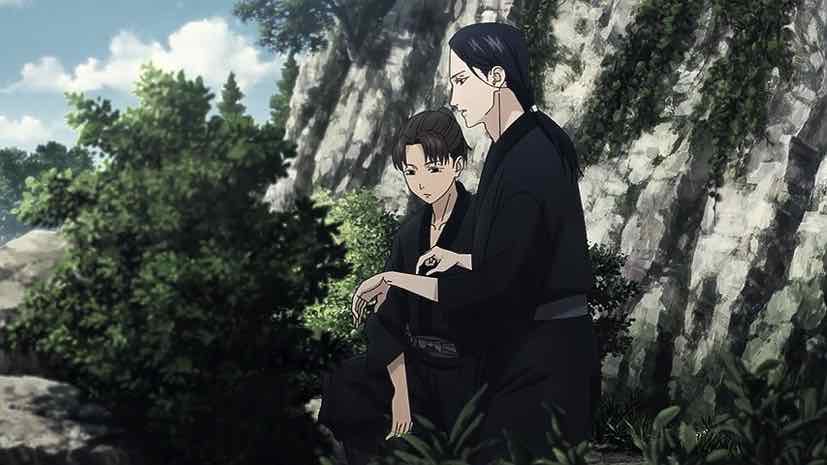
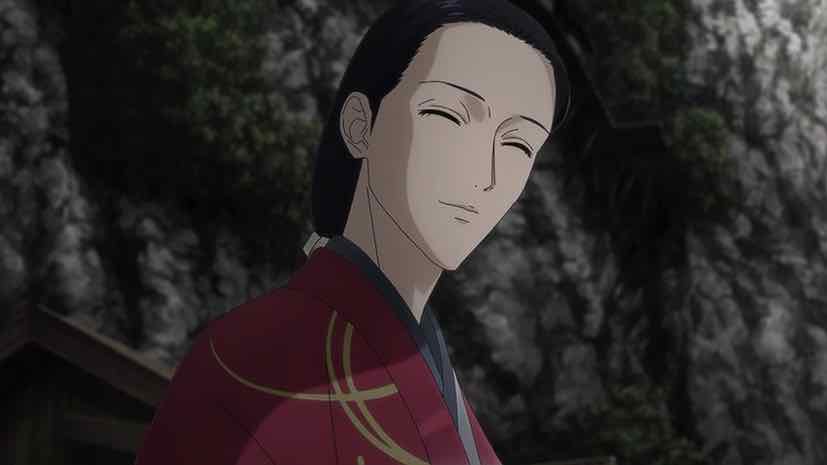

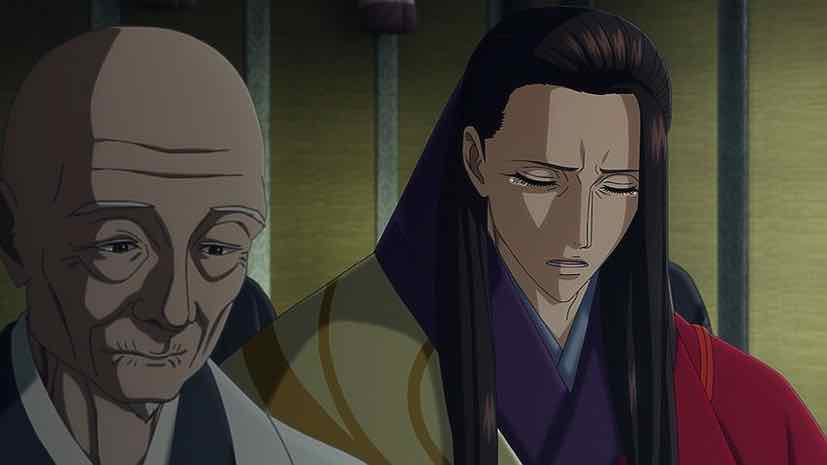
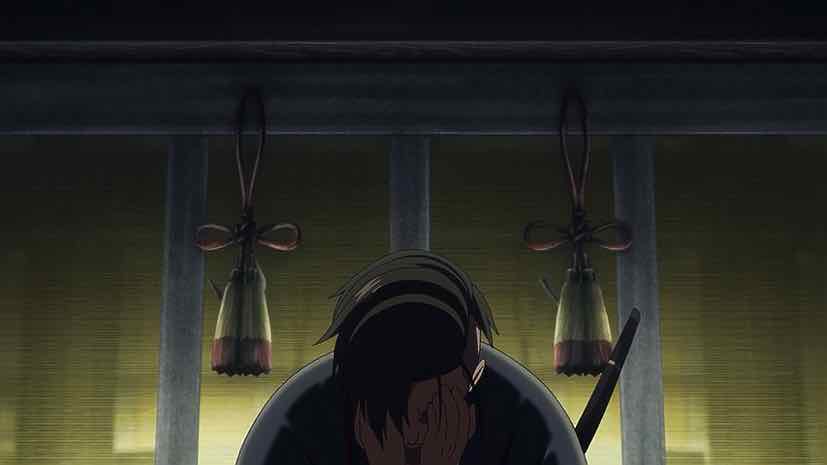
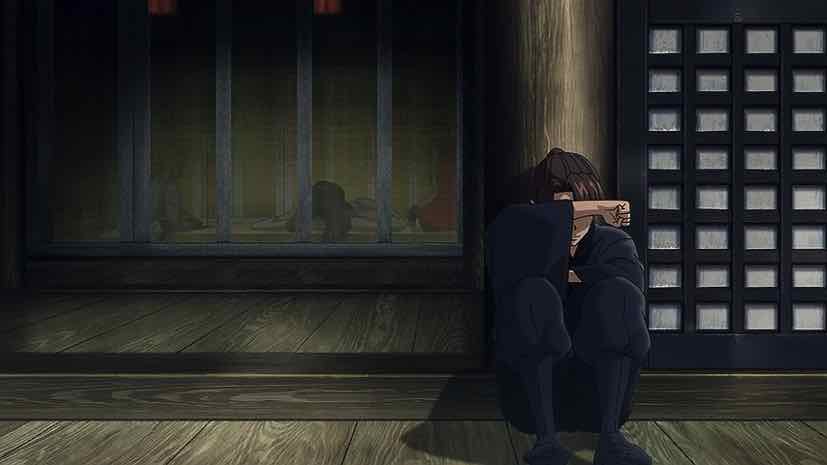
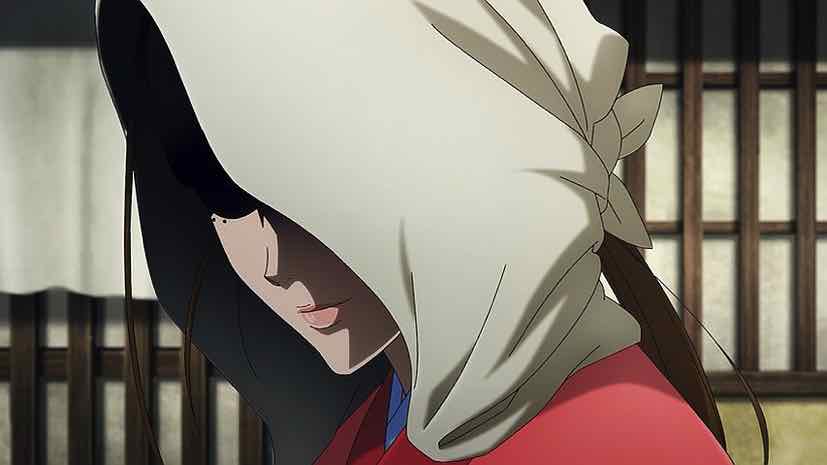
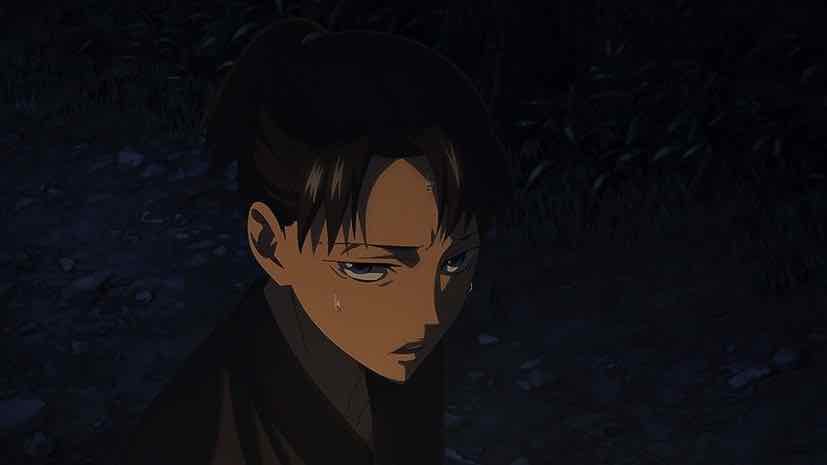
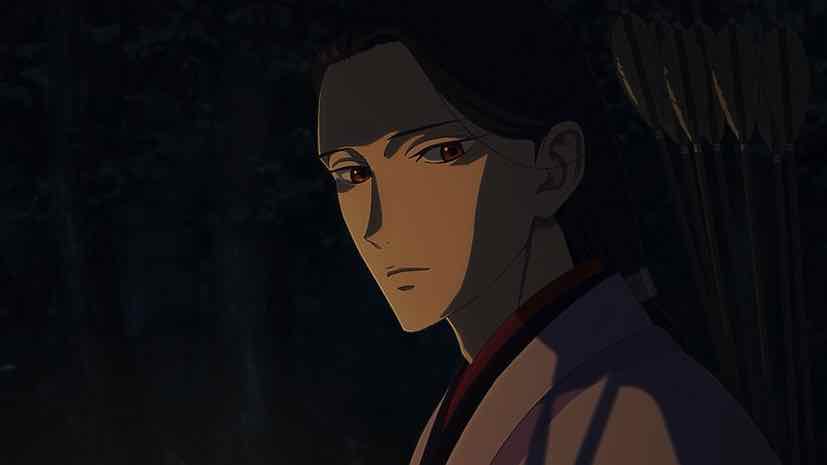

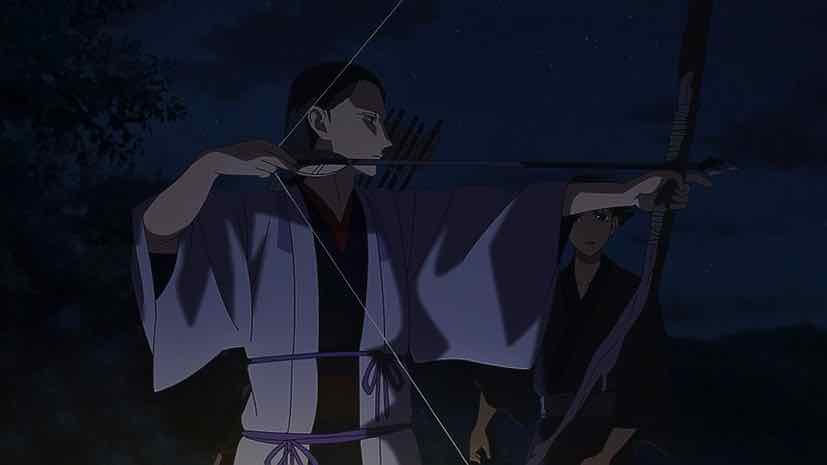
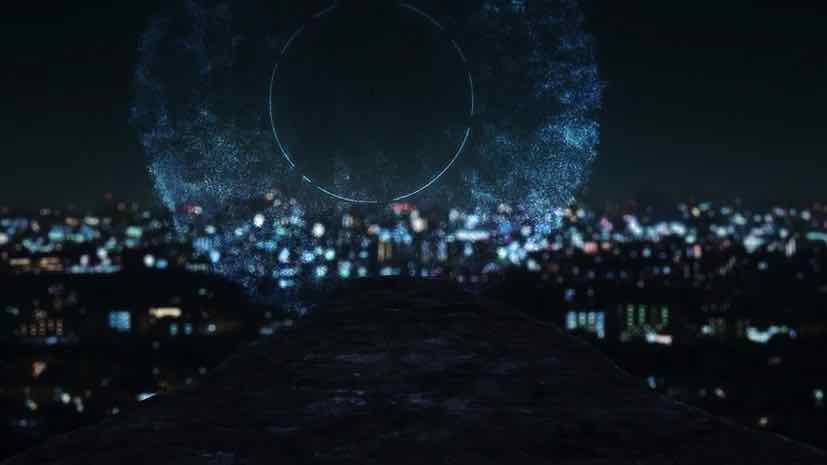
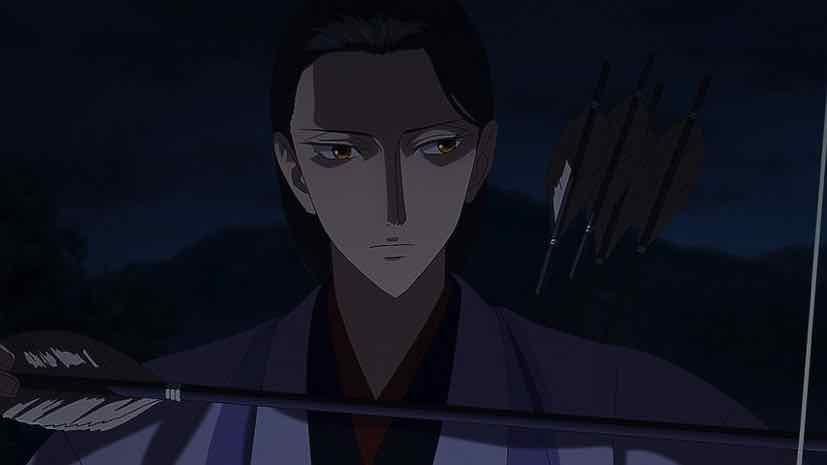
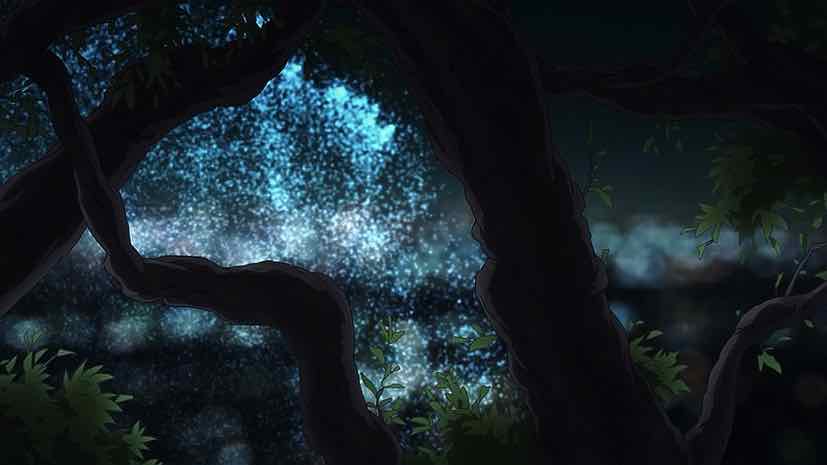
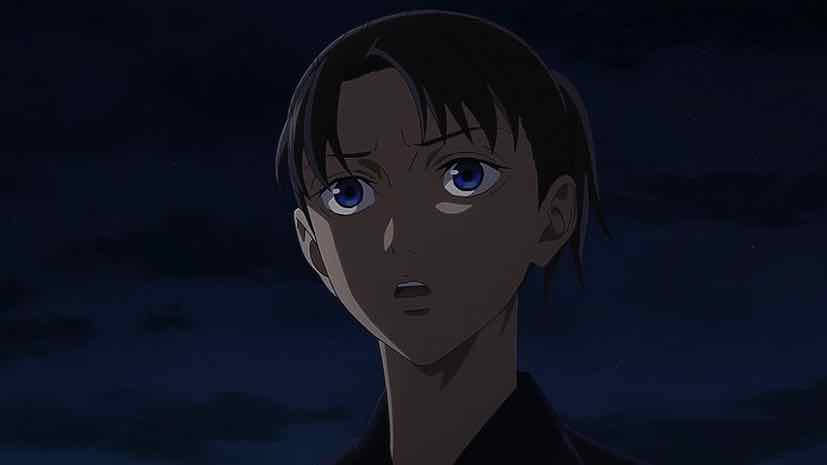
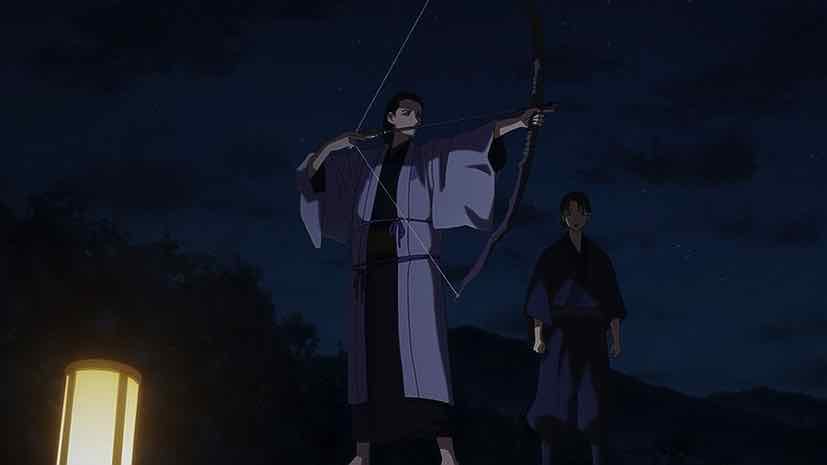
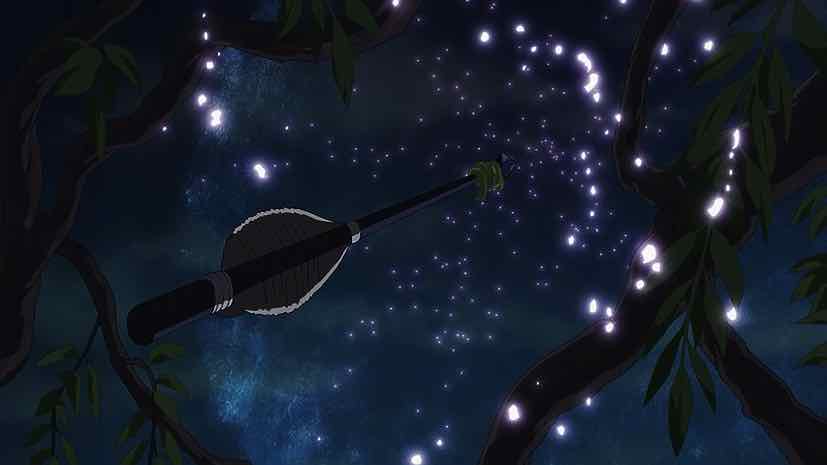
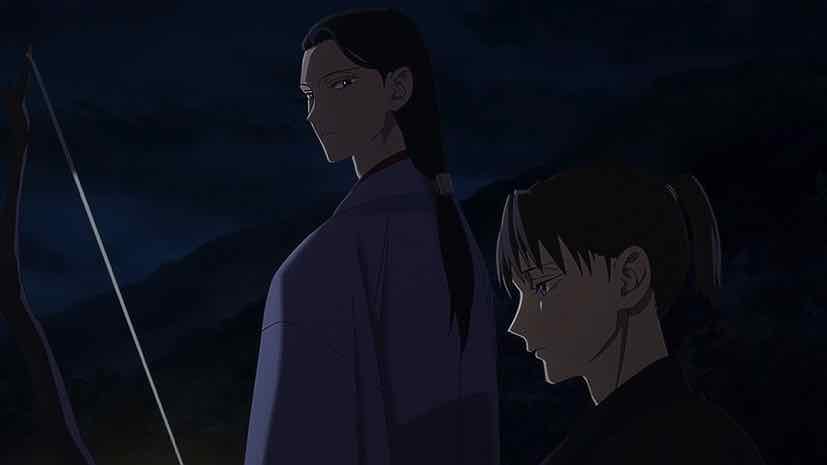
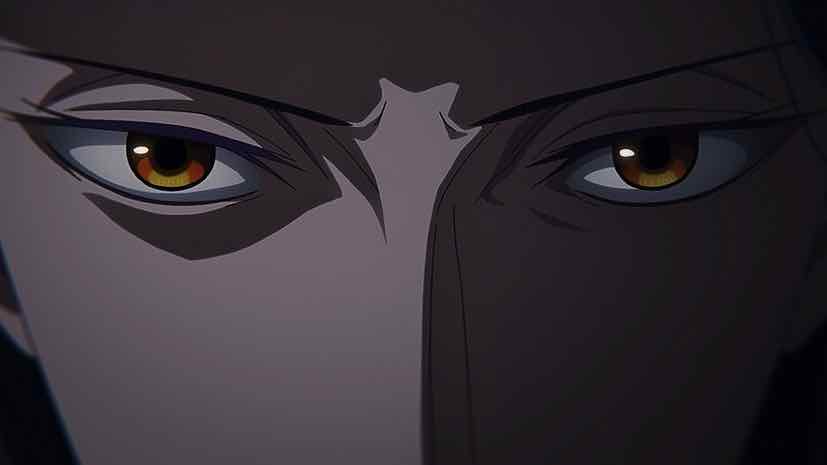
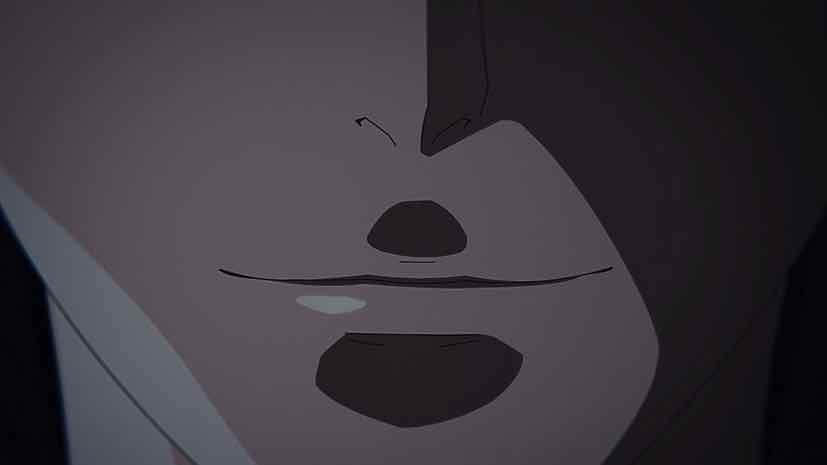
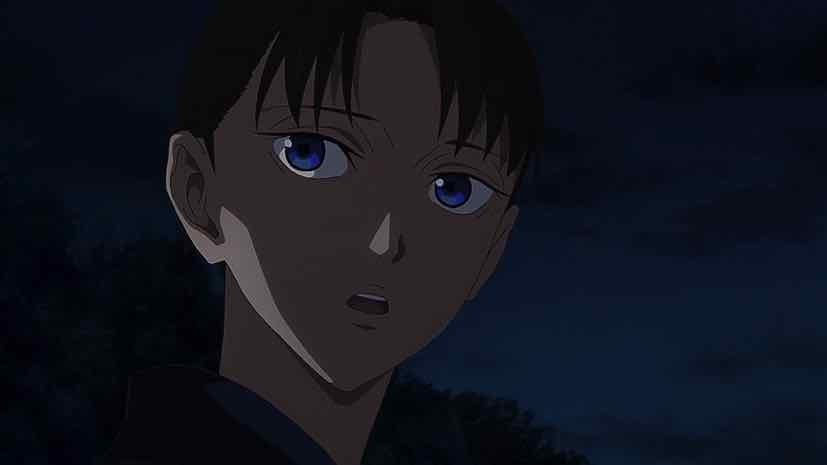
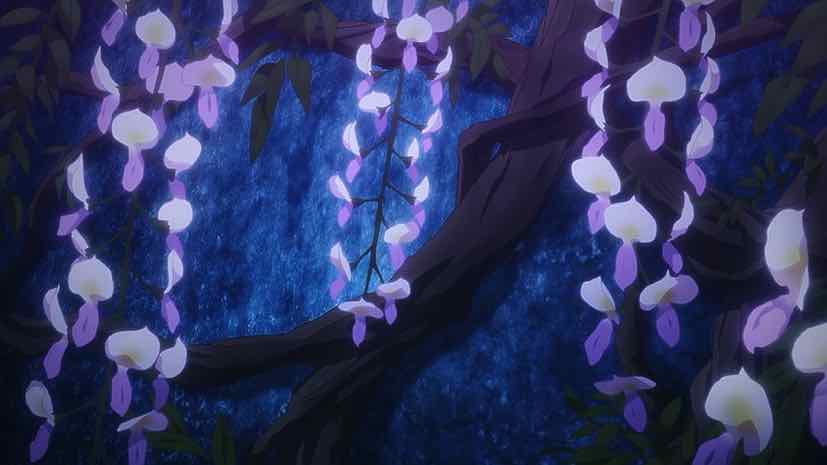
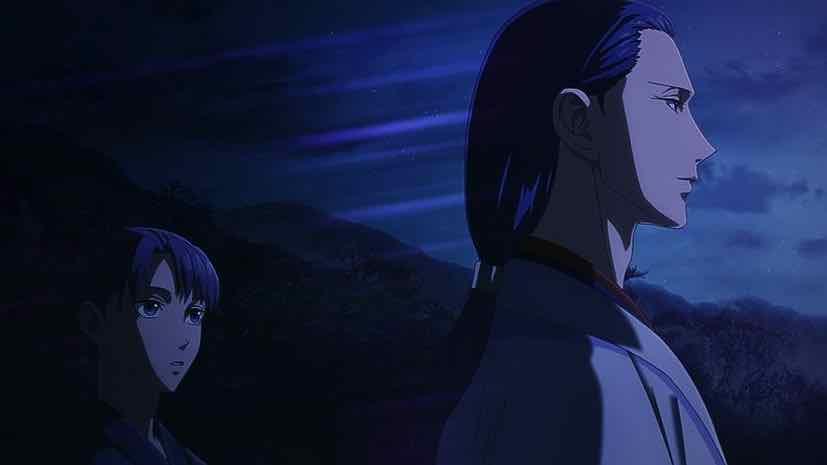
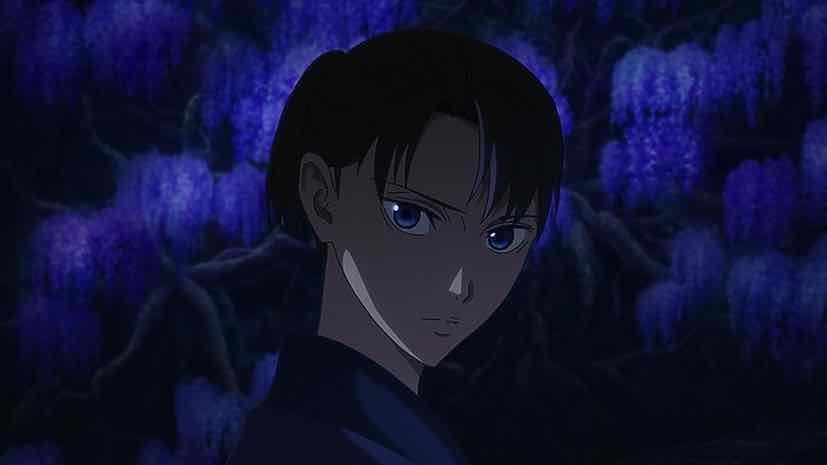
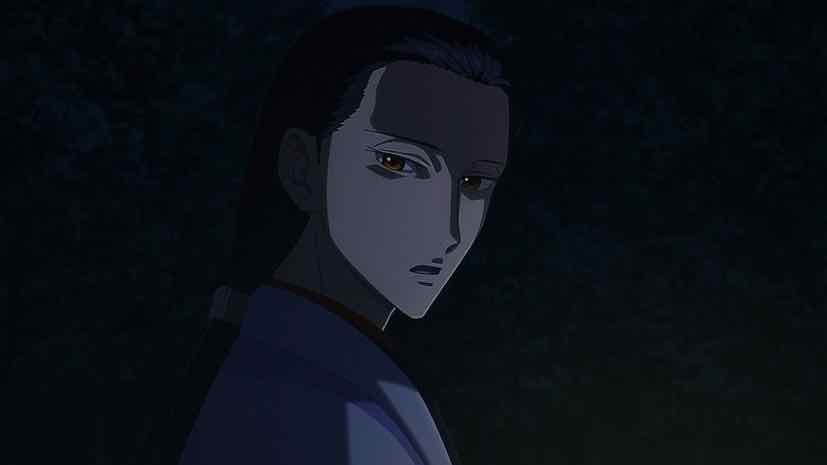
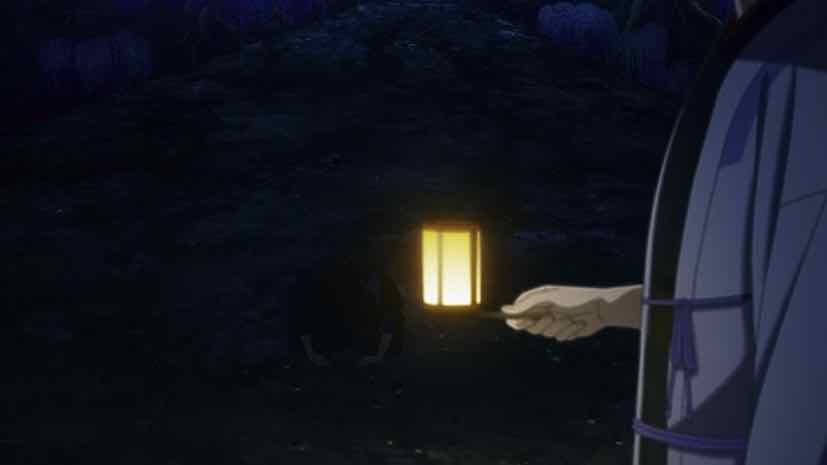
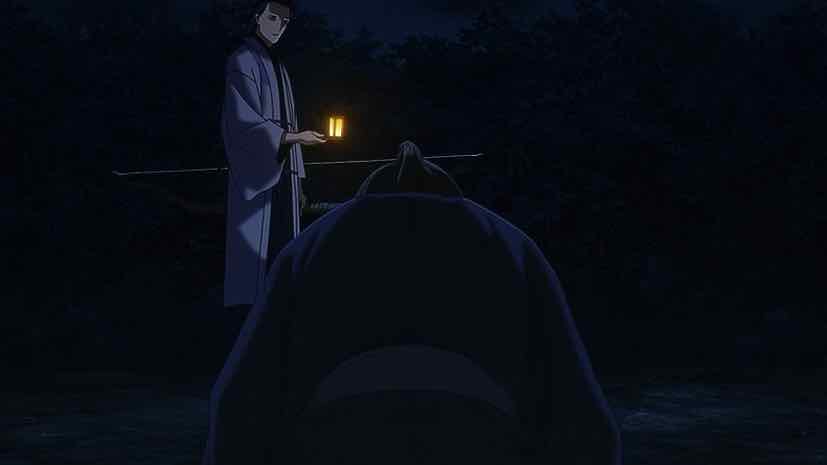
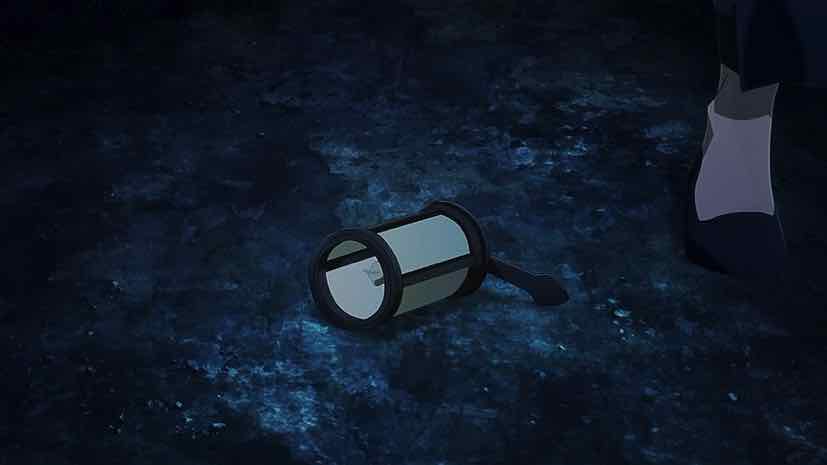
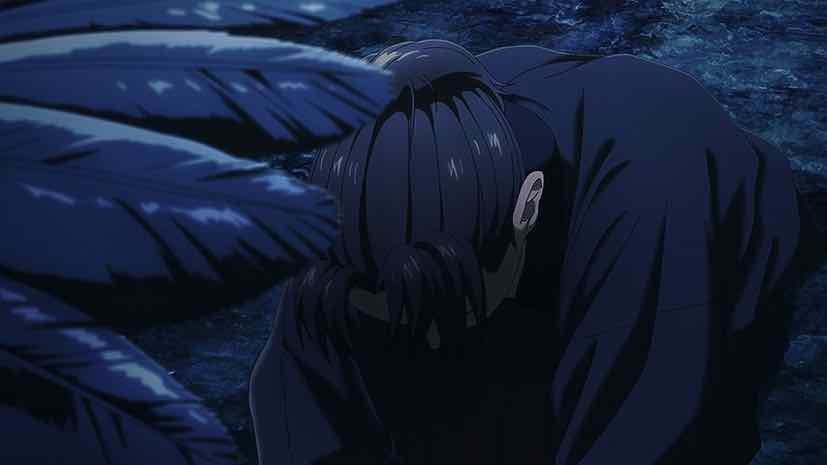
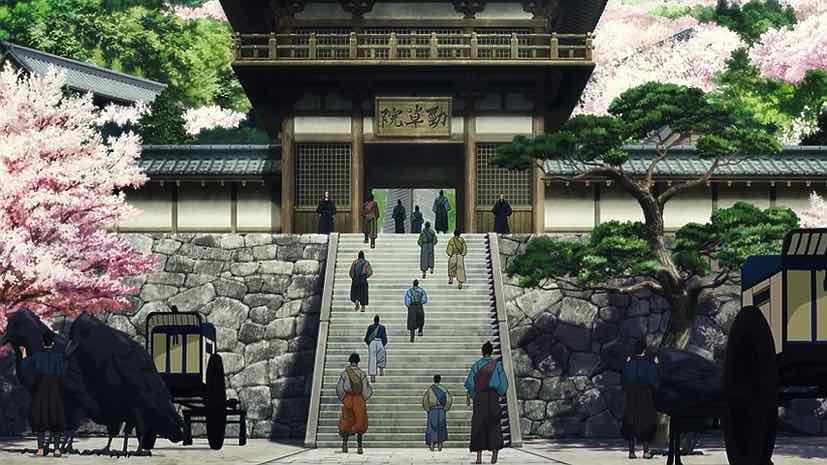
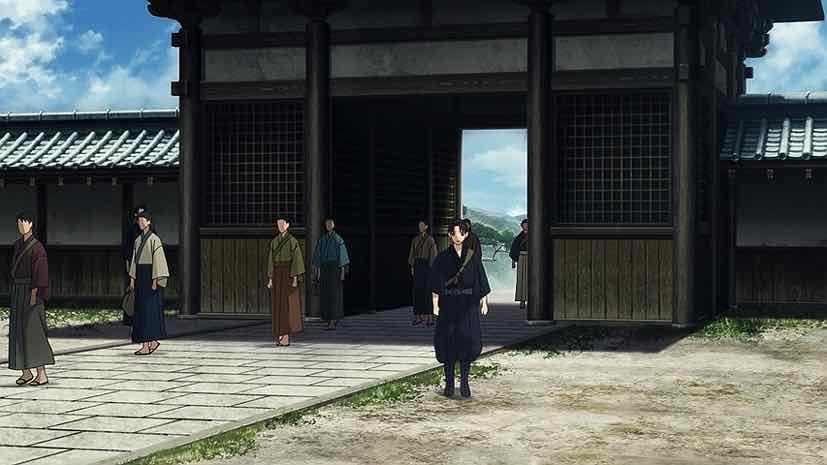
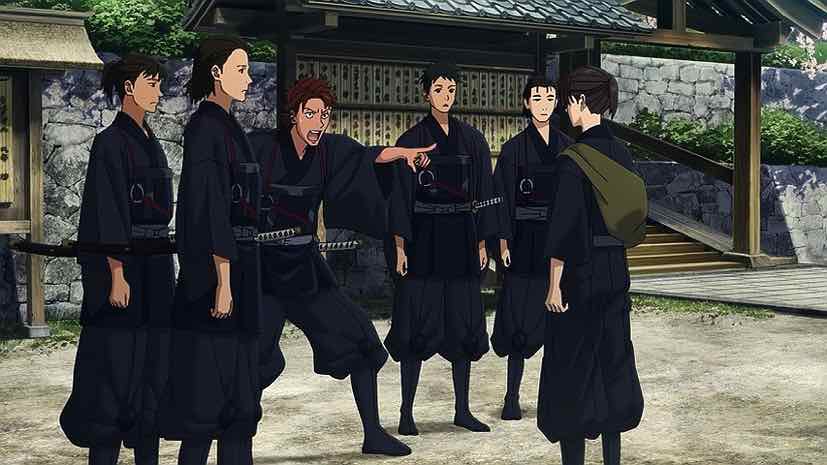
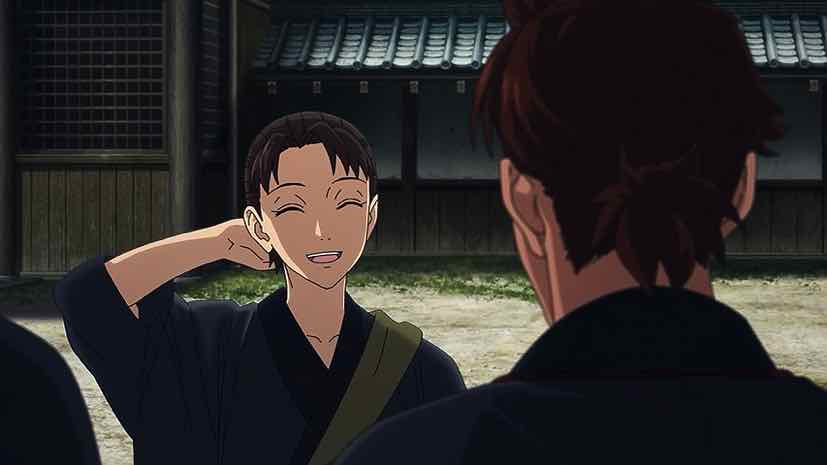
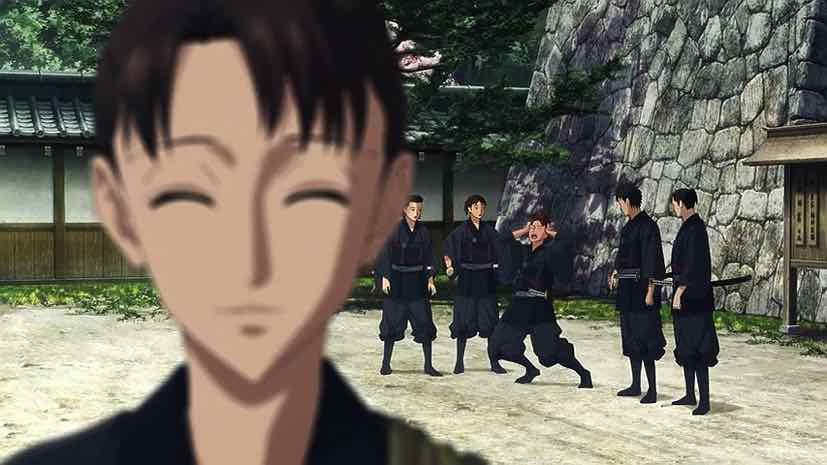
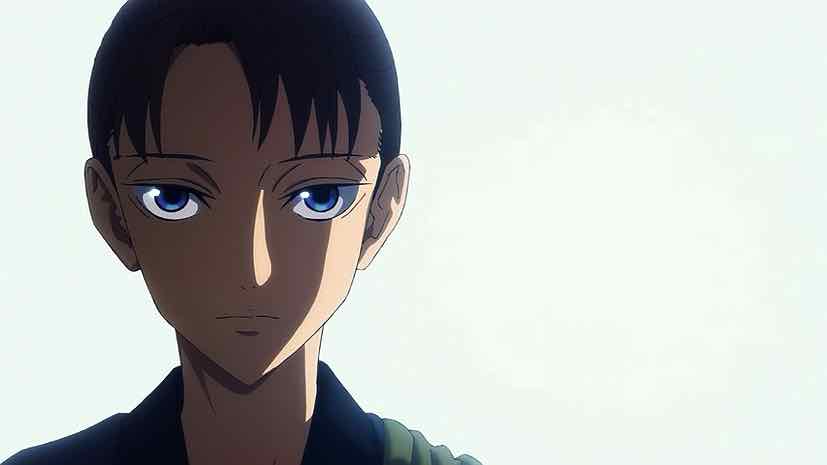
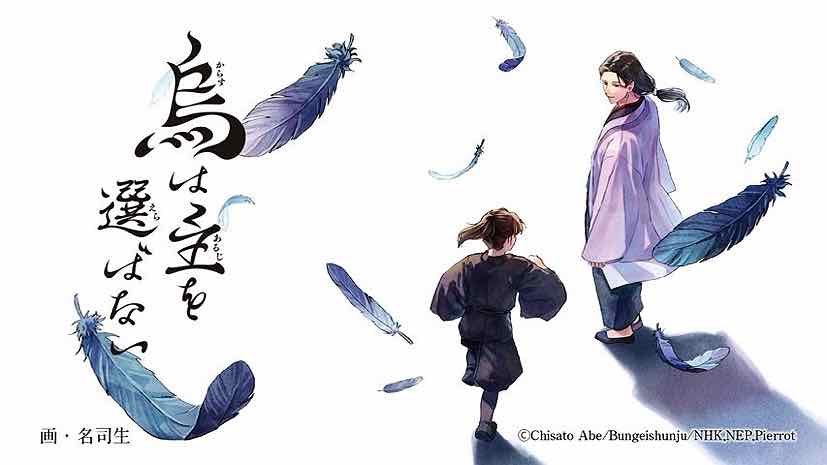
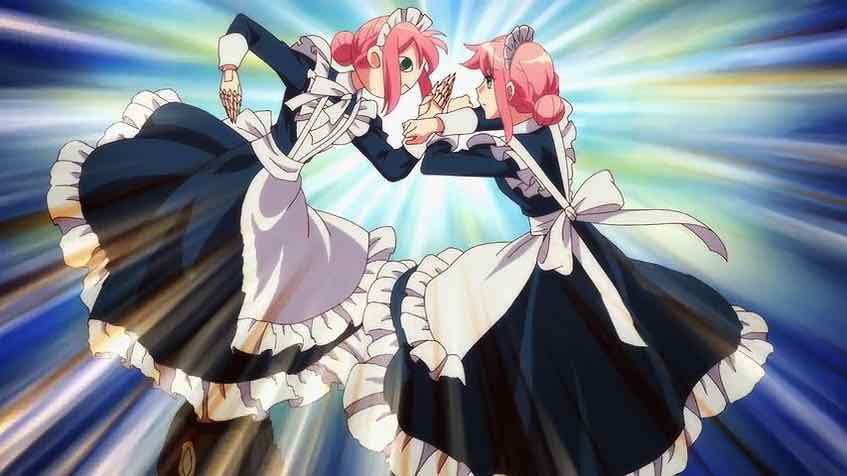
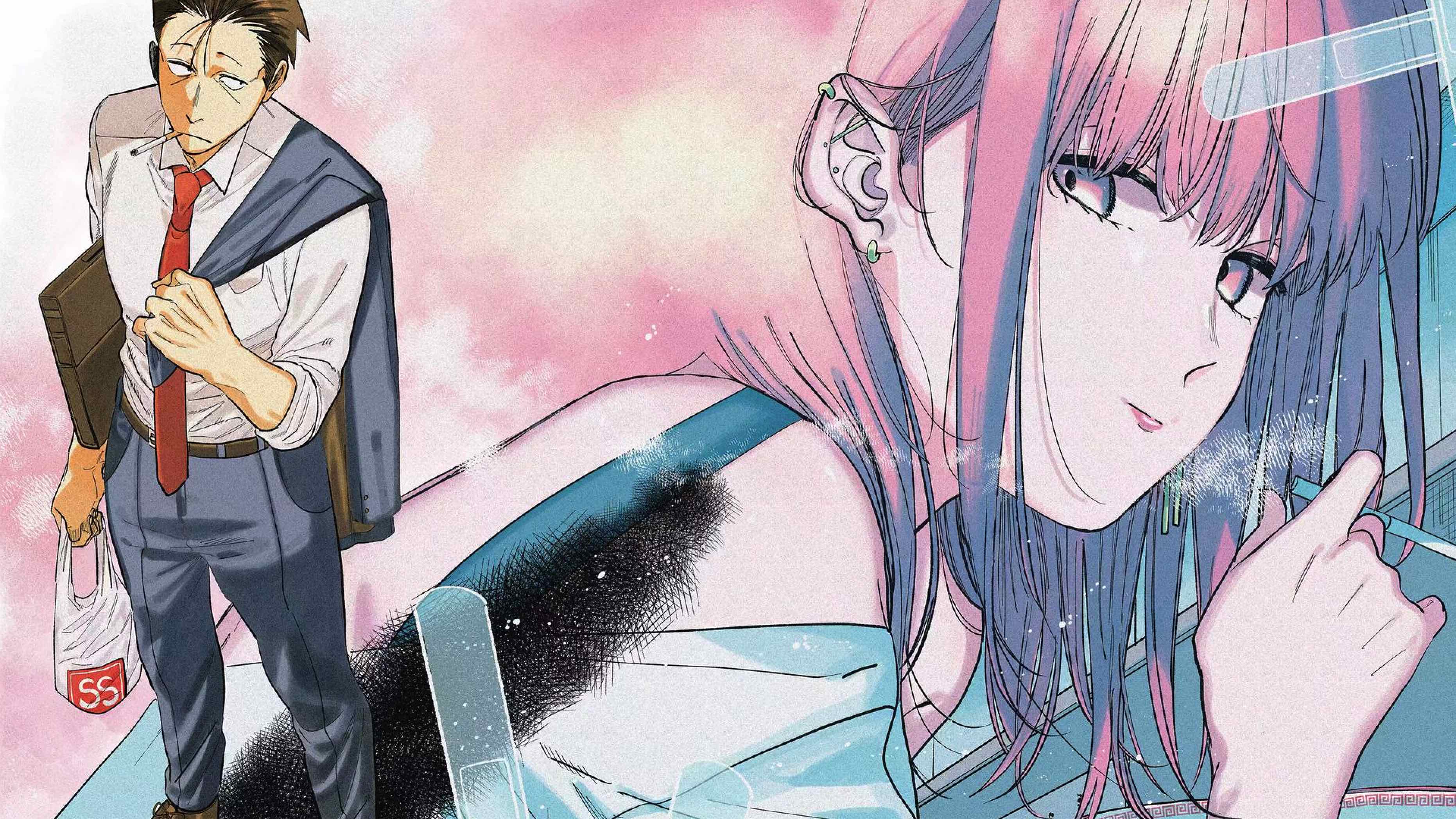
Vance
September 22, 2024 at 5:02 pmI know this will be an unpopular opinion, but I found Karasu wa Aruji o Erabanai far more engaging than Seirei no Moribito was. Moribito had amazing animation and had weight to its story, but I am the type to love series that are very plot-focused right from the get-go with a lot of foreshadowing and a mystery element like Karasu wa Aruji o Erabanai and Re:zero. They are more down my alley regarding my tastes given Moribito was very much a slow burn type of story.
AN
September 22, 2024 at 7:43 pmI’ve been reading non-stop and I’m almost finished with the Raven’s Empty Coffin (the fourth book in the series, and the one with Yukiya at Unbending Reed Monastery). Ichiryuu, the poor fool Yukiya beats up in episode 1 (I’ve been told the manga makes a similar narrative choice), doesn’t appear in the novels at all until Empty Coffin: the prologue is narrated from his perspective and that’s how you learn about Yukiya beating him up as kids. Why go through the trouble to introduce a character you won’t actually get to use in the future? They may have intended to future proof the anime, or use Ichiryuu’s bit for setting up Yukiya’s personality, but a part of me holds a small degree of hope for a second season covering the next 3 books at least.
The problem with fan-translations, especially of such a long work like the Yatagarasu series, is having someone with enough knowledge to get them translated properly and enough willpower to stick to the end. The quality of some novel fan translations i’ve seen dancing around for other franchises brings me a lot of concern. The most I’ve personally considered is, maybe, trying to translate important scenes that got entirely cut from the anime in one way or another: the full details of Yukiya’s family situation (the flashbacks the anime got are actually from Golden Raven and aren’t the actual explanation Yukiya gives in Erabanai), a conversation about Wakamiya’s thought process on the consort selection issue…
The idea of having to translate the Strategy lessons in Empty Coffin brings utter dread into my soul, and I’m a non-native english speaker self-taught in japanese. I think potentially covering some holes is as far as I can push it without ruining the chances of the Yatagarasu fandom getting their own Eugene Woodbury (A very wonderful professional translator who has fan-translated almost the entirety of the Twelve Kingdoms novels to english, besides the ones that were already fan-translated). Yet hoping for the second coming of Eugene may be a fool’s errand and I know that much…
Guardian Enzo
September 22, 2024 at 7:49 pmThe gent who did the Moribito translations (Ainiki the Archivist) did a very decent job, I thought. The Shin Sekai Yori one also struck me as good.
AN
September 22, 2024 at 8:15 pmI trust you on that (especially because I haven’t checked those), I had other translations in mind. I’m fairly certain I saw some of the older translations for Kusuriya no Hitorigoto and the quality was fairly questionable, for example. I do absolutely think this is way beyond what someone like me should be tackling however, so one has to hope someone with the proper skillset takes on the project.
I may give a try to translating the scenes I mentioned, however, if you’re ever interested.
Guardian Enzo
September 22, 2024 at 8:19 pmI’m interested…
Say
September 23, 2024 at 2:59 amTo be honest, the prose in the Yatagarasu series isn’t hard to follow. They made the prologue of the novels avaliable on line, so I had a taste of it and I am confident that I can translate it decently. I have saved two side stories in Japanese, but I haven’t read them yet. Plus, I got the Russian translations of the first six book to double check the meaning in case of doubt. What I lack is an environment to share those works and discuss them.
AN
September 23, 2024 at 3:21 amIt isn’t hard follow, but making the words english isn’t what makes a good translation. That’s exactly the kind of issue a lot of these fantranslations I was referring to have, in fact. The meaning is getting across, yes, but the soul of it is entirely gone and it flows like absolute ass because japanese and english are very different languages. I don’t think there is much of a point on forcing a translation from someone underqualified because as soon as it is done, you’re killing interest for a better translation down the line.
If you know you’re going to do a mediocre job, just converting the words, I would say to not do it. That’s what the fandom will be stuck with forever.
AN
September 23, 2024 at 3:33 amI learnt this the hard way back in the days when i was much, much younger, but even with the best of intentions translating poorly/in a mediocre manner media is a poisoned apple to that specific fandom. Especially so if it’s a small one.
Say
September 23, 2024 at 6:11 amI got your point about the fan translations. I still believe that it is more likely to have a second season announced than the novels being licensed in English, though. Well, it’s not my problem: native speakers can deal with it if they care, anyway. I’ll have the books shipped to me for Christmas and enjoy my reading whatever happens.
Collectr
September 22, 2024 at 11:34 pmThere’s always hope.
For some reason, Yatagarasu is slotted in my mind with The Apothecary Diaries and Raven of the Inner Palace, although the former is shounen fantasy and the latter two are (nominally) shoujo historical fiction. All portray feudal societies with a single ruler, all have a lot of politics, all originate from written media rather than manga. Raven (not Apothecary) also has fantasy elements. Apothecary has received a second season and ongoing English translation of the source material; Raven also has ongoing translations; yet Yatagarasu has neither a second season nor an official translation. Why? Is a novel much harder or more expensive to translate than a light novel? Is there a demographics problem (shounen vs shoujo)?
Guardian Enzo
September 22, 2024 at 11:41 pmI assume novels are considered less profitable and more work to translate, for starters.
I mean, Apothecary is a different category – it’s a monster hit. Everything it does will be translated and adapted into anime.
Nadavu
September 23, 2024 at 2:04 amThe revelation of what the ghost fires really is was brilliant, and I’m glad they teased and waited until the very last moment. Marvelously done.
This was a great show. But compared to Moribito and, let’s say The 12 Kingdoms and Shin Sekai Yori, it didn’t quite grip me to that extent, for two related reasons:
1. In general, It was a lot less epic. This might sound funny considering we’re dealing with the fate of an entire world here, but that only came about in the second and shorter arc, and the epicness was generally more hinted at than actually played out.
2. The first arc, when it focused on the would-be princesses, was just not accessible enough for me. I feel I need to rewatch it to enjoy it properly.
Also, did the prince not kill the Yatagarasu who attacked him when he went to the pleasure district early on in the series? I seem to remember people getting cut right and left. Can he not kill only when they are in raven form?
Also #2, I still maintain that if it comes down to it, a raven form would make quick work of a monkey form (not to mention it can simply fly away).
say
September 23, 2024 at 3:05 amDuring the assassination attempt, Nazukihiko fights the guards, but it was Rokon who slaughts them.
Nadavu
September 23, 2024 at 7:45 amYou’re correct, even though you’re talking about the second attempt (the one that almost worked if it hadn’t been for Yukiya). I was referring to the first attempt, back in episode 4, but I re-watched it and, sure enough, it’s Sumio who actually does the killing. So it holds that the kin’u can’t kill Yatagarasu. But he can, apparently, throw his sword up in the air with the knowledge and expectation that someone else would grab mid-flight and use it to kill. Now that’s a bit close to cheating in my book, but I’ll allow it.
Red Hat
September 23, 2024 at 2:11 amBokuYaba vs YataGarasu is going to be tough in the end of the year reviews
Guardian Enzo
September 23, 2024 at 8:58 amGoing to be an interesting Top 10 contest this year.
Scampi
September 23, 2024 at 3:44 pmWhew that went by so quick it didn’t feel like a season finale at all. There wasn’t much suspense over whether Nazukihiko would survive because there was still so much up in the air that won’t work without him. As the lynchpin of Yamauchi he’s also the central MacGuffin of the series. Still, I’m not particularly keen into settings like this and Twelve Kingdoms where all the good and bad are pinned on certain individuals because such systems are just doomed to fail. It magnifies the epicness of the individual and diminishes the epicness of the world itself. Wakamiya is working against a collapse that he has the possibility to overcome, but eternal societal problems like slavery and what Hatsune suffered through seems like they will remain passing mentions. The direction seems clear that such problems are beyond the kin’u’s scope because he will prioritize stability and survival of the whole over everything else. In that sense it’s understandable why true kin’u are not born every generation, and Yamauchi need “normal” Yatagarasu as rulers too.
Truly a beautiful and interesting world. Hasn’t had a series that makes me go on rants like this for a long time. Thanks for the fantastic coverage, Enzo!
Guardian Enzo
September 23, 2024 at 10:20 pmYVW. What a fun series to write about.
Nicc
September 25, 2024 at 7:58 amWhat a finale it was and I do agree that the chances for a continuation are slim. Still, I really enjoyed the 20 episodes that we got and this series was one of the highlights of the year for me. This episode wraps things up regarding the distribution of the sagecap and who really let the monkeys out to Yamauchi.
As a lot of us expected, Jihei’s letter didn’t tell the complete story. He just wrote in the letter that his wife left him while she was a lot more involved than that. Right, he took the fall not only to protect Koume, but also from knowing that her mom was involved. That’s something that Koume figured out on her own as she confronts her mom, Hatsune. She’s been living the good life as she has a collection of fine kimonos in her room. I don’t think she ever got around to wearing any of them as it would break her cover as an ordinary laborer. There’s one for a man too, which means she’s got a new man in her life as well.
It turns out that Hatsune was the mastermind behind the deal with the monkeys. She tries to justify her actions because of her past and that she’s owed the life that she has now. Thus, she has no issues with strangling her own daughter to death and also blames her that she was having it pretty good with Jihei until she was born. Wakamiya and Yukiya arrive just in time, with Koume knowing that Yukiya would come because he had treated her as a suspect. Koume is going to be fine, but then Hatsune’s new man shows up. However, he’s taken too much sagecap (Did he get it from Hatsune?) and loses control. Wakamiya opts to not kill the transformed raven (Yukiya was expecting the same move as when Wakamiya killed the monkeys) and we’ll later find out why he did so.
But, then Wakamiya is stabbed by Hatsune. I don’t think he was deliberately targeted, she just wanted somebody to stab. It could have been Koume or Yukiya, but Wakamiya just so happened to be in stabbing range. She got closer to killing him than the people who actually wanted him dead (The faction of the former Empress and Atsufusa). Sumio arrives and kills the wild yatagarasu as Wakamiya is tended to. Amongst the ruckus, Koume quietly leaves. Wakamiya is tended to at the Northern palace while Hatsune is interrogated. Yep, Sumio and Yukiya blame themselves for this, but Hamayu isn’t taking it. She gives Sumio a single punch as punishment and leaves it at that. Hamayu explains that as the kin’u, Wakamiya cannot kill another yatagarasu, even if the one who was attacking him has lost its humanity at that point due to the sagecap. Hatsune waxes about how society has failed her while the monkeys always fulfilled their end of the bargain.
Wakamiya does eventually recover and it’s not that long before he returns to his duties. Yukiya isn’t leaving him this time, even if being near the boundary makes him ill. He’s been gone for a while and the border needs to reinforced with more wisteria arrows. Those ghost lights are actually the lights from a city in the human world, whoa. The human world is already encroaching into Yamauchi as some villages have been destroyed. He explains that a true kin’u is born when one needs to be born because of a calamity that needs to be resolved. Yukiya then pledges his service to Wakamiya (the raven did choose its master). Yes, it is amusing that Yukiya did end up at the Unbending Reed Monastery after all. In the beginning, it was either to be sent there or to serve the Prince for a year. He’s now doing both. With both of her parents gone, Koume has to start all over from scratch.
And that’s it. There are still lots of questions to answer even regarding the first arc (Have the former Emperor and Empress abdicated? Did the wedding and coronation happen off screen or they never occurred yet? What happened to Asebi?) and there’s more regarding the monkeys and if they have anything to do with the calamity that is befalling Yamauchi. I’m hoping to see more, though it’s unlikely. Thanks again for your coverage and this series is definitely making into my AOTY shortlist.
Nellie
October 25, 2024 at 12:05 amSo, uh… I blitzed through 20 episodes in 3 days while clearing my anime backlog.
I’m glad this captivating story got the adaptation it deserved- one with love (and a decent budget) poured from every corner.
*Thinks of Hikari no Ou and cries bitterly because that story deserved so much better*
Guardian Enzo
October 25, 2024 at 6:44 amTBF I think this one is better even in terms of writing but yeah, Hikari no Ou got screwed.
Tee
November 5, 2024 at 9:53 amI just complete the anime it was so amazing! Im really dishearented to see theres so little coverage on the anime. There’s so many questions I have regarding the anime . I really want to know what happens overall! Where should I go to finish were the anime left off at like the novels? Can anyone tell me what the name of the novels are & were I should start reading?
Guardian Enzo
November 5, 2024 at 11:47 amCan you read Japanese? Because there’s no official translations, unfortunately.
Ainikki the Archivist
September 20, 2025 at 3:49 amWell I’m late to the party as always, but at least I’m here 🙂
I’m translating the last big section of Ravens Shouldn’t Wear Kimono at the moment, so I figure I’d offer some encouragement and perhaps a little hope for reading these in decently rendered English.
I really like this series as read and as an anime. I didn’t expect them to be so different. Most of the events that play out are the same, but there’s a lot of compression–only natural when you’re trying to cover one 85k+ word book per season. The way the story unfolds in the novel is steady and comfortable. I got the feeling that I’d read this kind of story before, only slant–there’s a lot of familiar, friendly-to-tread fantasy ground here, but everything is a little off-balance. The result is something that’s easy to slip into but hard to leave. I’ve read this kind of story before, but not in quite this way. Structurally, the novel allows all of the Yamauchi princesses to be protagonists fighting against a flawed system at least as much as one another. Wakamiya/the Crown Prince only comes in at the very end to tie it all together nice and neat.
I find Chisato Abe’s prose to be unusually clear for a Japanese author. She avoids most of the vaguer constructions that Japanese has available in favor of specific detail. In this, she’s closer to Akutagawa Ryuunosuke and Toriumi Jinzou than, say, Uehashi Nahoko, who never met a compound adverb she didn’t like. The opening scene is quietly beautiful and didn’t make it into a anime, which bummed me out a bit. Sakura Palace is its own character complete with gorgeous nature descriptions (that don’t go on too long, fortunately).
Since there’s no anime spoilers here, I’ll drop a bit of the beginning here as a teaser:
————————————–
The plum blossoms were already in bloom, their delicate scent carried on a gentle breeze. The Lord of Azumaya was walking indoors and paused to look out a window. The plum trees grew beyond the garden’s pine trees. He saw white blossoms peeking out from behind the thick green pine needles.
As he admired the scenery—the plum blossoms were blooming before his very eyes—his concentration was broken by the sound of a koto. The musical performance matched the stunning sight of the garden, evoking the essence of spring.
Lord of Azumaya resumed walking, following the music to the end of a hallway. The koto player was his daughter. She sat behind a curtain that he cast aside the moment her song ended. “What wonderful music,” he said.
She blushed and turned to face him quickly, surprised by his sudden appearance here. “Um… thank you, father.”
He grinned down at her, and then came closer. “Where is everyone?” he asked. “Surely some of your friends should be around. Did you send them somewhere?”
“Everyone went out to pick mugwort. They should be back soon, I think.”
“I see.” He wasn’t about to leave his daughter alone without attendants or friends, so he pulled out a stool from the corner of the room and sat across from her. “What song were you playing? Is it something you composed?” he asked.
“You were listening to that? How embarrassing.” She laughed: a light and easy sound. He knew that her simple dismissal of such a lovely song would cause many of the Imperial Palace’s dedicated musicians to go pale and stumble over their own words.
Her name was Futaba, a duchess of the Azumaya family. She had the light-colored hair and eyes that were typical of the family, along with an undeniable gift for music. Her smile was a study in artless art: she had been trained since childhood to be a duchess and acted that way at all times.
“It’s a good thing you don’t take after me,” the Lord of Azumaya family said jovially to Futaba. “You’re talented and beautiful, just like your mother.”
Futaba covered her widening smile with her sleeve. “You shouldn’t disparage yourself quite so much, father. I have heard that I resemble you from many people.”
“I wonder where those people got that idea, then. Do they have eyes?”
————————————————–
This small section has 2 appended notes (one for koto, one for mugwort) where it’s posted. There are 35 notes in the text so far and I’m not done yet.
The most significant change from the original is demoting the princesses of the four families to duchesses; there were way too many princesses running around otherwise. (The Empress is technically a High Princess going by one of her titles, and Fujinami is an imperial princess. It got to be too much and too confusing in places, so I went with the British nobility style since there’s an obvious difference in rank between Princess Fujinami and Princess Asebi of Azumaya. All of that’s in my endnotes for people who really care about that stuff. Hime means “young lady of noble birth,” not just “princess.”)
I’ll finish up Ravens Shouldn’t Wear Kimono sometime in the next month or so, and then it’ll be on to the next. I finished translating Moribito so I see no reason not to finish these, especially because I like ’em. There’s a Raven of the Empty Coffin translation available, too, and it’s got notes, though it doesn’t read very naturally to me. (I’ll be doing that one, of course, when I get that far.)
Happy reading/anime viewing!
Guardian Enzo
September 20, 2025 at 8:43 amThank you for all the hard work you do. I’ve read everything you put out there so far and it’s very well-done.
I would agree that not only the novels and anime but also the manga are all very different. Yukiya’s character alone is a huge difference in the way he’s portrayed (the anime is the most different, I would say).